

Presents:
DECEMBER 8, 2022 • Italian Community Center
7:00AM - Registration | 7:30-9:45AM - Breakfast & Program
7:00-7:30AM Registration & Networking | 7:30-9:00AM Breakfast & Awards | 9:10-9:45AM Breakout Sessions



Presents:
7:00AM - Registration | 7:30-9:45AM - Breakfast & Program
7:00-7:30AM Registration & Networking | 7:30-9:00AM Breakfast & Awards | 9:10-9:45AM Breakout Sessions
Join us as we recognize innovators and entrepreneurs taking the southeastern Wisconsin economy to the next level. This year’s award winners will share insights on how they built their businesses, developed new products and overcame challenges.
Lifetime Achievement winner Wayne Oldenburg will discuss lessons learned from building multiple successful companies while Regional Spirit winner Theresa Nemetz shares how showing off the city and its dining options has translated into a fast-growing business.

The program continues with breakout sessions on strategies for securing your innovation and financing options for entrepreneurs. Attendees will leave inspired to pursue their own ambitions.
Innovation Winners:
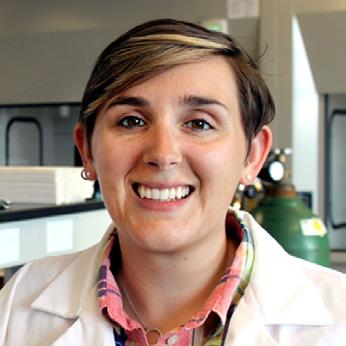
- Rapid Radicals, Paige Peters, Founder & CTO (1)
- Wearable Technologies, Deepak Arora, Founder, President & CEO (2)

- Advanced Ionics, Chad Mason, Founder & CEO (3)

Entrepreneurship Winners:
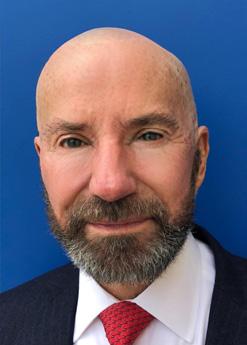
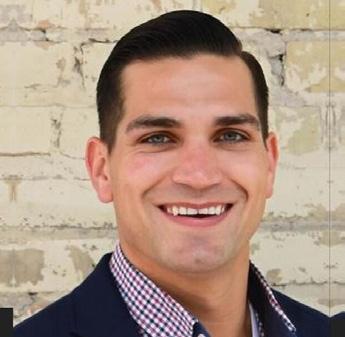

- Justin Nicols, Founder & CEO, Sift Healthcare (4)
- Jeremy Fojut, Co-Founder, CEO, Like|Minded (5)
Regional Spirit Award Winner: Theresa Nemetz, Founder & Chief Experience Officer, Milwaukee Food & City Tours (6)
Lifetime Achievement Entrepreneur Winner: Wayne Oldenburg, CEO, Oldenburg Group (7)
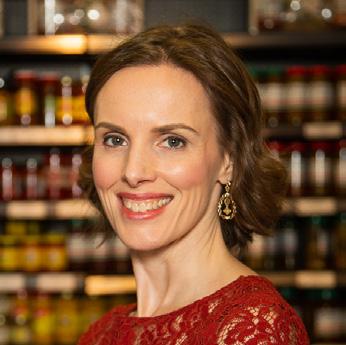









Kohl’s Corp. chief executive officer Michelle Gass will step down from her role on Dec. 2 to become the president of San Fran cisco-based Levi Strauss & Co.
With Gass’ departure, the Kohl’s board of directors has named board member Tom Kings bury as interim CEO. He will serve in that role until a permanent
BY THE NUMBERSsuccessor is named.
Levi Strauss anticipates Gass will be promoted to CEO within 18 months of her January start date, according to an SEC filing. The company’s forthcoming employ ment agreement with Gass is expected to include a base salary of $1.48 million per year, with an initial target bonus of 175% of her
base salary; a one-time signing bonus of $8.1 million; and two stock grants, each worth $8.1 million. In addition, Gass would be eligible for around $3 million, or two years of her base salary, in severance if she is not promoted to CEO within 18 months and decides to leave the company as a result.

Gass had a base salary of $1.47 million at Kohl’s in 2021 and total compensation of $12.9 million, according to the company’s securi ties filings.
She joined Kohl’s Corp. in 2013 as chief customer officer and took over as CEO in May 2018 upon the retirement of Kevin Mansell, Kohl’s former chairman, chief executive officer and president.

During her tenure at Kohl’s, Gass led the company through nu merous challenges, including retail industry headwinds, the COVID-19 pandemic and two near-board takeovers by activist investor groups. She spearheaded partner ships, such as Amazon Returns and Sephora at Kohl’s, in an effort to bring the retailer’s 65 million-cus tomer base through its doors. The company currently operates nearly 1,200 stores across the country, largely in suburban markets. How ever, another one of Gass’ growth strategies includes the launch of an additional 100 small-format locations over the next four to five years, in markets considered
too small to support the typical 80,000-square-foot full-size Kohl’s store. That includes downtown Milwaukee, where Kohl’s will open a 40,000-square-foot store in fall of 2023, on the ground floor of the HUB640 building at 640 Vel R. Phillips Ave.

A Kohl’s board member since 2021, Kingsbury has served in se nior positions at leading retailers, including president and CEO of Burlington Stores; senior execu tive vice president of Kohl’s; and several management positions at The May Department Stores Co., including president and CEO of its Filene’s division. He is currently a director of Tractor Supply Co., BJ’s Wholesale Club Holdings Inc. and Big Lots Inc.
Gass’ departure is something activist investor groups have called for over the past two years as part of efforts to shake up the company’s board room and drive additional shareholder value. Most recently, Cleveland-based wealth management firm Ancora Holdings Group LLC called for the removal of board chair Peter Bone parth and Gass in a Sept. 22 letter to the board. Commenting on Gass’ announced departure, An cora chairman and CEO Fredrick DiSanto said now is “the right time for (Kohl’s) to pivot to a leadership team with enhanced operational expertise and strong turnaround experience.” n
ADDRESS: 2011 S. First St., Milwaukee
WEBSITE: bridgewatermke.com
CUISINE: American CHEF: Steve Gustafson
MOOD: Welcoming and modern
PRICING: Lunch appetizers, $13-$16; lunch entrees, $13-$29; dinner entrees, $18-$45; cocktails, $10-$14
Benson’s Restaurant Group’s newest concept is an upscale-casual restaurant located within the R1VER development at 2011 S. First St. in Milwaukee’s Harbor District.

Dubbed The Bridgewater Modern Grill, the 11,000-square-foot riverfront eatery features a seasonal, locally sourced menu. Created by corporate executive chef Alex Sazama and executive chef Steve Gustafson, the menu is inspired by the custom oak-fed Jade grill, visible to guests from an open-concept kitchen.
“It was important to us to build an environment where our guests are excit ed to dine with us for lunch with business clients, a fun date night, or right off their boat on a sunny day,” said David Marcus, chief executive officer of Benson’s Restaurant Group.
The space boasts a 165-seat dining room, an indoor-outdoor bar, private dining room for 30 and the longest riverfront patio in the city.

The chicken salad sandwich features slow-roasted, chopped rotisserie chicken tossed in a scratch-made green goddess dressing and topped with cashews, tomato and lettuce on a fresh, herbed focaccia roll.
The ancient grain salad starts with a base of miso sweet potato puree and is topped with smoked local mushrooms and charred onions. Snap peas and avocado bring a freshness to balance the earthy ancient grain mix of quinoa, red lentils and brown rice tossed in a cilantro pumpkin pesto.
The dining room at The Bridgewater Modern Grill is designed to be modern, yet approachable.

MILWAUKEE CHIP CO. founder Michael Mo eller is a potato chip purist. When he digs into a bag of the salty snack, he wants to taste the main ingredient: the potato.
A lack of local homestyle potato chip op tions led Moeller to start making his own.
“Basically, I found myself wanting a style of potato chip that I could not find on the shelves here,” said Moeller. “There’s some thing about mass-market chips I’ve found where all that potato goodness had gone away and what you were left with is basically a vehicle for oil and salt.”
He began his endeavors with the thought that making his own potato chips would be more of a side business. Moeller cooked his first few batches in his apartment but quickly found that the state’s packaged food laws required him to make a bigger commitment to the business.
Moeller said Milwaukee was uniquely situat ed to support his business due to the agricul tural knowledge so many businesses have and the large amount of food manufacturing that goes on here.
“I had to brute force this. I did not have a recipe when I founded the LLC in March of 2020,” said Moeller. “I made probably 1,000

different varieties of potato chips and just got better and smarter each time.”
The company started out by renting com mercial kitchen space in Upstart Kitchen but has since moved into its own 2,500-squarefoot facility at 73rd Street and Bradley Road in Milwaukee.
Milwaukee Chip Co. currently has two fla vors of chips: classic and a spicy variety, called “space heater.” More flavors will be unveiled late next year. All chips are cooked in canola oil and come from russet potatoes.
Moeller has taken a made-in-Wisconsin ap proach to his product. The company’s potatoes are sourced from Okray Family Farms in Plover. Packaging is made by Belmark Inc. of De Pere and Milwaukee Chip Co.’s logo was designed by Milwaukee-based Good Land Creative.

The company’s chips are currently available in two different Sendik’s stores and various metro Milwaukee microbreweries. Moeller said he’s working to get his chips into more Sendik’s stores and to generally scale up his business.
“We want these chips on a lot more shelves,” said Moeller. “They pair perfectly with local microbrews and craft cocktails, so as far as I’m concerned, they belong at every brewery in town.” n
NEARLY 18,000 FANS gathered at the Mil waukee Brewers’ home stadium on Nov. 11 to watch a different kind of ball game, as the venue – for the first time in its 22-year history –hosted basketball games instead of baseball.
The Aurora Health Care Brew City Battle at American Family Field featured an ear ly-season doubleheader of Wisconsin Badgers basketball, with the men’s team defeating the Stanford Cardinal 60-50 and the women’s team falling to the Kansas State Wildcats 77-63.



Crews with Chicago-based Intersport – a marketing agency that led creative concepting and operations for the event – worked over the course of two days to transform the baseball diamond into a basketball court.
The Brew City Battle marked the first col lege basketball event staged in a baseball-only venue since the University of San Diego played San Diego State at the Padres’ home stadium Petco Park in 2015. n
1. The court was set up across the infield, with one hoop positioned near third base, the other near first base and center court near the pitcher’s mound, which was removed.


2. Crews lay wood panels over a layer of plywood subflooring as they built a regulation college basketball court on top of the Brewers’ baseball diamond.


3. A worker uses a sledgehammer to fit a wood panel into place.
4. Workers install bleacher seating around portions of the hardwood court.
5. The Brewers said more basketball games could be held at American Family Field in the future.
6. Fans lined up outside American Family Field ahead of the Brew City Battle on Nov. 11.
7. American Family Field was heated, and its retract able roof was closed for the doubleheader event.
FORMER PORT MILWAUKEE director Adam Tindall-Schlicht led a transformative chapter in the port’s long history. He recently left that job to take a new position as the administrator of the Great Lakes St. Lawrence Seaway Development Corp., under the Biden administration. During his four years with Port Milwaukee, Tindall-Schlicht spearheaded several projects, including the start of construction on the $40 million DeLong Co. agricultural maritime export facility and the return of cruise ships to Milwaukee. The city had its most successful cruise ship season this summer, welcoming more than 13,000 passengers. During a recent interview with BizTimes Milwaukee reporter Ashley Smart, Tindall-Schlicht reflected on his time at Port Milwaukee and shared what challenges remain for its next leader.

“I think the word inspiration is fair, and I think it was a combination of several factors. One, being raised in the Milwaukee area and having that connection to Lake Michigan from my childhood but also previously working at the U.S. Department of Transportation. Over that time, I had become much more aware of the importance of Port Milwaukee. The inspiration that I brought four years ago was that our port was a sleeping giant. There were opportunities to expand the role of the port commercially and recreationally.”
How did the opportunity with the Biden administration come about?
“I wasn’t looking for different work. It had to be a really rare opportunity for me to consider leaving the port, especially at this time of growth and change. I was contacted by the White House, and we had those conversations about how I could bring best practices and the work that we’ve done here in Milwaukee into the national space. It was an exceptional opportunity that I couldn’t pass up.”
What kind of difference are you hoping to make at the federal level?
“I believe we have created something at Port Milwaukee that is replicable. Finding the balance between the work of the port, which has historically been viewed as strictly commercial, to one that is about contemporary freshwater utilization and stewardship. What I mean is expanding the contemporary role of the port to be inclusive of capital planning, stewardship, commercial growth, cargo diversification, recreational expansion … those are all things that we’ve accomplished here in Milwaukee. My hope is that we can take that model and expand upon it nationally and internationally.”
What were the most difficult aspects of seeing through both the DeLong terminal and cruise ship projects?
“Let’s start with cruise ships. Moving from 2018, when we had less than 1,000 cruise passengers, to this past season with 33 cruise ships and over 13,000 passengers, the hardest challenge has been creating those opportunities to advance Milwaukee as a tourism destination but also as an operationally efficient operation for cruise ships. We have a staff here that was able to recognize the opportunity (in cruising) that was becoming ripe and grab it. I cannot understate how much hard work has gone into supporting the cruise industry operationally. Our staff have worked countless weekends during the season, taking care of every aspect of those cruise ships.
“When I reflect on DeLong, I think we need to credit the Port Infrastructure Development Program because this opportunity would not have been realized had Milwaukee not been selected in the first round of that PIDP funding. In the early stages, the biggest challenge was identifying that public-private partnership that could create what
we now know is a $40 million terminal. Putting those pieces together required a lot of effort, and it started with a handshake.”
How did you keep momentum in realizing these key projects?

“The secret is listening to your staff. If there was any one thing that I feel that I’ve tried to do in a very deliberate way, it’s engaging the voices of the staff of the port and the port’s customers and tenants. These are the real people that have the expertise and the insight. Creating a collaborative space in which employees can engage not only with leadership but with each other to share ideas creates the battery for passion and purpose.”
How close is the port to offering an intermodal option?
“We have worked with beneficial owners of cargo throughout southeastern Wisconsin to try to figure out a way in which the class one rail lines can bring that service back to Port Milwaukee. While we haven’t been able to accomplish that yet, I remain optimistic because there’s far too much economic opportunity here that the service won’t come online eventually.”
What will be the biggest challenges for the next port director?
“Climate change and coastal resiliency. Look no further than the flood event here that caused $2 million in damage in January 2020. That was a case in point about how climate change, major storm surge events and coastal resiliency are increasingly elements that we need to consider in how a port is operated and, I would argue, how any lakefront property is operated.”
What will you miss most about being Port Milwaukee’s director?
“The staff. I came here with an idea of what I thought I could bring from an inspiration perspective. I had a willingness to work hard and an optimism for the port’s potential. None of that would have been possible – all of the growth, all of the change, all of the ideas we’ve been able to pursue – without the dedication and expertise of Port Milwaukee tenants, staff, and customers. That partnership and what they have brought to my life personally and professionally will stay with me forever.”
Did you ever think the return of cruise ships would be this successful?
“I think we’ve exceeded our imaginations. We knew there was a ripe opportunity but to see 33 cruise visits this far on the western edge of the Great Lakes has been a really spectacular accomplishment. As I contemplate the future, I think Milwaukee’s sweet spot will continue to be 10,000 to 15,000 cruise passengers a year. There’s always going to be market fluctuation, but I think if that’s the target for the port and our regional tourism economy, that’s really going to consistently provide that value in this industry.”
What opportunities remain for Port Milwaukee?
“It’s not a new opportunity but it’s one that will require decades of work, and that is the effort to de-list the Milwaukee Harbor as an EPA-designated estuary area of concern. That work was ongoing before I arrived here but over the last four years, we created what I would argue is a catalytic step forward in de-listing Milwaukee. The port and MMSD, in partnership with community stakeholders, the federal government, and the state, are going to build a $150 million dredge material management facility here at the port in the coming years. It will hold all the contaminated sediment removed from the Milwaukee estuary. These sediments have been there over 100 years and removing them will create a hugely consequential difference in livability and the ecological health of Milwaukee’s three rivers.” n
A rendering of the potential plaza at Ivanhoe Place.
A PROPOSAL to pedestrianize a half-block of Ivanhoe Place east of Farwell Avenue between the Crossroads Collective food hall and Hooligan’s tavern, on Milwau kee’s East Side, could soon get a financial boost.



Mayor Cavalier Johnson’s administration recently submitted a proposal to allocate $3.9 million in tax increment financing to fund traffic calming and pedestrian en hancements along the East North Avenue corridor, as well as a “new public space on Ivanhoe Place.”

According to the proposal, the improvements would be aimed at implementing a catalytic project from the city’s 2009 Northeast Side Area Plan, which called for re developing a full block of Ivanhoe Place – between North Farwell and North Prospect avenues –into “a convertible plaza that can serve as a parking, delivery area, a drivable street, and a plaza or courtyard, depending on use, time of day and activity.”

That area plan, which was designed to serve as a guide for later, more specific streetscaping decisions, is a bit broader than a proposal backed by the East Side Business Improvement District in late August.
Koutantzis,
The BID-supported plan calls for the closure of Ivanhoe Place from the entrance at North Farwell and East North avenues to the entrance of Black Cat Alley, just to the east of the Sip & Purr Cat Café at 2021 E. Ivanhoe Place. The plaza would be about 4,000 square feet in size and would require the re moval of 12 metered parking stalls, according to the BID board, while still maintaining garage access to Educators Credit Union, at 2243 N. Prospect Ave., and the alleyway.

The city’s 2022 Gathering Spaces Feasibility Study, an effort spearheaded by Johnson while he was still an alderman, lists Ivan hoe Place as being on the city’s Pedestrian High Injury Network, so “closing a portion of the street would reduce pedestrian conflicts with turning vehicles, create a quiet place in a busy commercial district, and expose more people to Black Cat Alley,” an Aug. 29 BID board letter states.
News of potential funding support for an Ivanhoe Place pla za, comes as the Brady Street Busi ness Improvement District studies the potential of pedestrianizing all or a portion of its commer cial district, and as the Johnson administration has been actively embracing city planning and streetscaping efforts focused on making all of the city’s commercial districts safer for pedestrians.
For developer Tim Gokhman, managing director of Milwau kee-based New Land Enterpris es, which owns the Crossroads Collective food hall, the proposed TID funding for the Ivanhoe Place plaza would be the realization of something he has long hoped for.
“Without the funding, there’s no project, and that has been one of the positive differences with this administration. They understand that investment in infrastructure is not an either/or, and that a successful North Ave (which meets Ivanhoe Place at its intersection with Farwell) will pay dividends and positively affect other areas,” said Gokhman, who has advocated for years for some kind of pedestrian

ization of Ivanhoe Place. “Milwau kee has been far behind its peers in placemaking and great public gathering spaces. We have some catching up to do, and this is a critical step in that direction.”
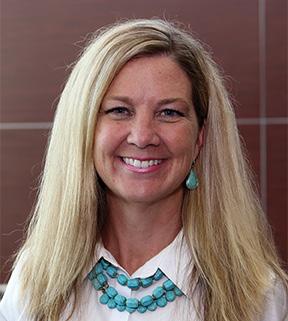
Officials are counting on three developments to create the bulk of the new property value – and resulting increment – necessary to fund the $3.9 million in public infrastructure improvements envisioned along East North Avenue. Those include a 53-unit, mixed-use apartment building being developed by Ryan Pattee and Shar Borg in the 1500 Block of East North Avenue; developer Kendall Breunig’s plan to trans form a former dairy processing plant at 1617 E. North Ave. into a 17-unit apartment building with retail on the first floor; and the potential redevelopment of 1431 E. North Ave., the site of the for mer Judge’s Irish Pub, which was recently demolished.
The 1500 and 1617 East North Avenue projects alone are ex pected to generate $8.85 million in incremental value by the year 2025, a TID project plan states.
The $3.9 million in TIF fund ing proposed for East North Ave nue – and the creation of the TID itself – must still be approved by the city’s Redevelopment Authority, the Common Coun cil, and the area taxing bodies represented on the city’s Joint Review Board. n
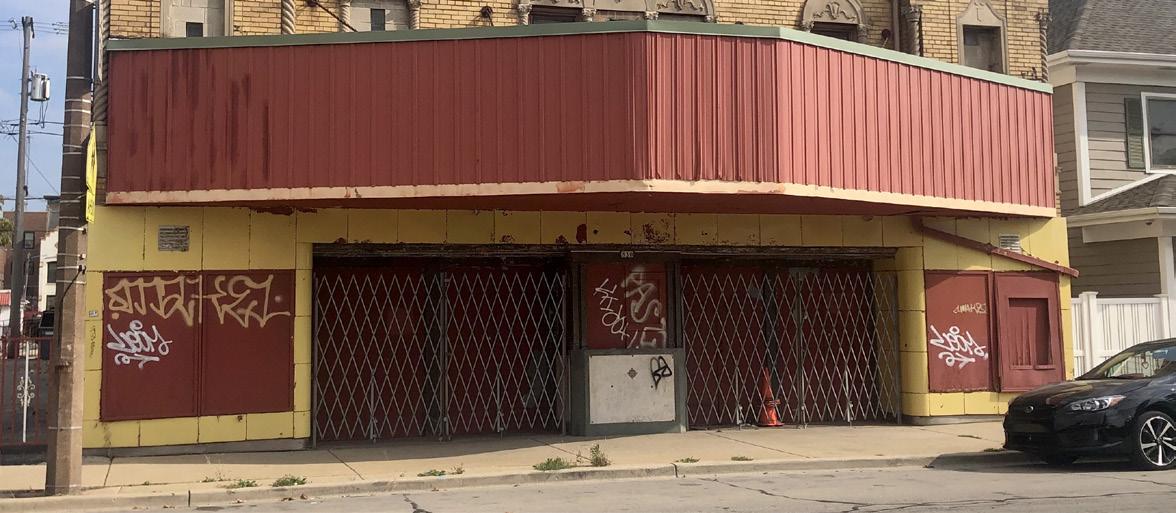
Constructed in 1926, the little theater at 830 S. Sixth St. in Milwaukee’s Walker’s Point neighborhood has lived many lives. Built as the Royal Theater, it was quickly renamed the World Theater. Indeed, tiny reliefs of a globe can be seen on its Mediter ranean Revival façade. After ceasing to be a movie house, it was used for several decades as a church – most recently as Inglesia Pentecostal Abrigo. The church sold the theater in October 2020 to the Milwaukee Community Bicycle Project Inc. for $150,000. The nonprofit, which runs a bicycle repair shop at Vulture Space, 651 N. Plankinton Ave. in downtown Milwaukee, bought the building with the hope of someday opening a second bike shop at the location, said founding director Evan Pack. For now, the structure is being used for storage.
ADDRESS: 830 S. Sixth St., Milwaukee OWNER: The Milwaukee Community Bicycle Project Inc. ASSESMENT: $201,500


A6-year-old girl called 911 from Milwau kee’s lakefront one evening in the fall of 2021. Her mother, standing on the rocks of Lake Michigan’s shore, was inches away from attempting to end her own life.
When law enforcement arrived, Patrice Moore watched from the passenger seat of a squad car as sheriff’s deputies guided the woman to safety and consoled the child. Once the scene was secured, Moore got the OK to approach. That’s when her work as a clinician on Milwaukee County’s Crisis Assessment Response Team began.
Moore ultimately determined involuntary commitment for treatment was the best course of action, and the woman was admitted to the coun ty’s psychiatric emergency department, formerly known as the Psychiatric Crisis Services center and located at the time in Wauwatosa.
The call was among the first of many Moore would respond to as a county CART clinician, and one that would remain deeply imprinted in her mind.
“We saved a life, but the thing that stuck with me was the exposure of this child and what her future may look like, you know, she will be (a men tal health) patient eventually because she saw this whole scene unfold,” she said.
CART works alongside specially trained law enforcement officers in responding to calls in volving individuals experiencing mental health
and suicide crises to determine the most ap propriate level of care. Launched in 2013 as a collaboration between the county’s Behavior al Health Services Di vision and the Milwau kee Police Department, the service has since expanded to 11 teams serving the entire county.
latest transformational step, closing the Milwaukee County Mental Health Complex in Wauwatosa, has taken hard work by many people and a will ingness to form public-private partnerships that benefit the greater community.
Moore, who has worked as a therapist for 12 years and as a clinician with BHS the past four, sums up her current job description as “meeting people where they’re at,” which applies to both their physical location and level of need.
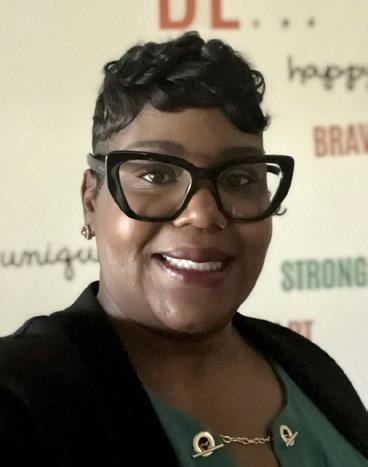 Moore
Moore
The expansion of CART and other mobile crisis services is just one of the many steps BHS has tak en over the past 12 years to restructure its mental health delivery system.
The mid-2000s brought a wave of controversy related to the treatment of patients under the coun ty’s watch. Overcrowding at its emergency room led to multiple incidents of involuntary psychiatric patients being held for hours in the back of police cars waiting to receive treatment. The scandal led to a 2010 report by Massachusetts-based Human Ser vices Research Institute and the Wisconsin Policy Forum, which deemed the county’s mental health system as overly reliant on crisis intervention and outdated practices, such as institutionalized care.
County officials and health system leaders now describe the system as a “community-based” model. However, the journey from the 2010 report to the
“I want the person to be the driver in the as sessment as far as what do they think they need help with,” said Moore. “Not all people need to go to the hospital, not all people need to be chaptered. … Sometimes when people process what they’re feel ing, the crisis is lifted and they can go back, we can follow up, and we create a safety plan.”
In cases in which the individual is an imminent danger to themselves or others, a high level of crisis intervention and care is required. But for others, it may only take a conversation and referral to one of the county’s mental health walk-in clinics or other social services, such as housing or supported em ployment.
That philosophy of “meeting people where they’re at” is at the heart of the county’s new and improved model, which shifts resources away from inpatient and institutional care to reinvest in ser
vices and programs within communities. In adopt ing a modernized approach and national best prac tices – such as holistic and trauma-informed care, stigma reduction, decriminalization and racial eq uity – the ultimate goal, from a system standpoint, is to reduce the cost of the county’s behavioral health system and prevent hospitalizations, emer gency room visits and police detention.
In early September, BHS’s redesign reached its final stage with the permanent closure of the Mil waukee County Mental Health Complex, marking the end of what became known as a controversial chapter in BHS’s 130-year history.
Around the same time, the newly built 12,000-square-foot Mental Health Emergency Cen ter opened its doors at 1525 N. 12th St., just north west of downtown Milwaukee, strategically plac ing BHS’s mental health emergency department (previously known as Psychiatric Crisis Services) at the center of greatest need. According to BHS, 93% of patient visits to PCS at the Mental Health Com plex in Wauwatosa originated from the city of Mil
waukee, with four zip codes on the west and north sides of the city – 53218, 53209, 53206 and 53208 –accounting for 33% of total visits.

What’s equally notable is the new emergency center brings four of Milwaukee’s major health care systems – Advocate Aurora Health, Froedtert Health, Ascension Wisconsin and Children’s Wis consin – to the forefront of the transformation ef fort through a historic public-private partnership. A joint venture agreement saw the county cover half the estimated $12 million in construction and startup costs and the health systems divide the oth er half equally, each covering $1.5 million or 12.5%.
About a year before the new emergency cen ter opened, the privately operated Granite Hills Hospital in West Allis, another newly constructed facility where BHS has now outsourced its acute in patient services, began taking patients.
With the opening of these two mental health facilities, along with ongoing investment in other crisis and outpatient services and partnerships, Milwaukee County’s behavioral health redesign
1. Milwaukee County Mental Health Complex and Psychiatric Crisis Services emergency room (closed September 2022) 9455 W. Watertown Plank Road
2. Mental Health Emergency Center 1525 N. 12th St.
3. Marcia P. Coggs Human Services Center (administrative offices for the county’s Behavioral Health Services Division) 1220 W. Vliet St.
4. Granite Hills Hospital 1706 S. 68th St.
5. BHS Access Clinic South / Sixteenth Street Community Health Centers National Avenue Clinic 1635 W. National Ave.
6. BHS Access Clinic East (in partnership with Outreach Community Health Centers) 210 W. Capitol Drive
7. Milwaukee Center for Independence Behavioral Health Crisis Resource Center – South 2057 S. 14th St.
8. Milwaukee Center for Independence Behavioral Health Crisis Resource Center – North 5409 W. Villard Ave.
has come full circle.
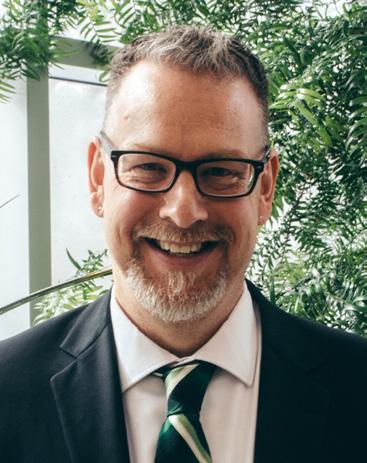
While long-term patient outcomes and the broader impact on southeastern Wiscon sin remain to be seen, there’s no disputing that collaboration has been and will contin ue to be a key driver of this significant under taking.
“Now, we’re in it together, and I think that part of the story is a fascinating narrative, that commu nity hospitals, outpatient partners and the county, we are all serving the community for the better ment of the community, and it really aligns with the county’s goal of becoming the healthiest coun ty in Wisconsin,” said Mike Lappen, administrator at Milwaukee County BHS. “… So many folks have been dedicated to make this happen. Something this enormous takes a lot of buy-in.”
The county’s new community-based model counters its old approach of housing the bulk of its acute services at one single location: the nowclosed Milwaukee County Mental Health Complex at 9455 W. Watertown Plank Road in Wauwatosa.
The 900,000-square-foot campus was built in the 1960s – during a time when institutionalized or inpatient care was the default – to accommodate thousands of patients in need of acute, long-term and emergency psychiatric care. Today, inpatient care – while necessary in some cases – is considered a last resort.
As mental health best practices and laws evolved, the Milwaukee County Mental Health Complex failed to adapt, and its quality of care was repeatedly called into question by regulatory agen cies, namely for the high percentage of patients
admitted after being detained by police and heavy reliance on crisis intervention and institutionalized care, which are now considered outdated, expen sive and ineffective.
The facility itself, housing both an emergency department and inpatient hospital, also became a drain on the county’s funding.
“When you have something that’s as big of an anchor on your system and your budget, you’re not just paying for those beds, you’re paying for all the legacy costs of this huge facility,” said David Hughes, president of the Human Services Research Institute.
HSRI authored the 2010 report on Milwaukee County’s adult mental health care delivery sys tem. The report recommended several changes, including downsizing and redistributing inpatient capacity and ultimately closing the Mental Health Complex.
At the time of the study, the complex had be come “a dumping ground, for lack of a better term,” said Hughes, for the whole community, regardless of patients’ level of need.
That was due in part to BHS’s unique position as a hospital operator. Milwaukee County has a specific requirement under state law to provide the receiving facility and fund care for involuntary psychiatric patients (meaning they are an immi nent danger to themselves or others and were de tained by law enforcement as a result). And what’s more, under federal law, the county’s psychiatric emergency department – like all emergency de partments – was mandated to treat anyone who walked through the door, regardless of an individ ual’s ability to pay.
Lappen said a stigma developed around socalled “county patients,” or individuals not covered by private health insurance who, as a result, were often turned away by private health systems.
“The four health systems had routinely relied on the ability to, when anybody on their emer gency department or inpatient units were having (acute mental health) challenges, it was a relatively simple solution to just ship them over to the special ty hospital,” Hughes explained.
“(The complex) … was the place where just about half of our patients were voluntary who came to us because they knew we would treat them with dig nity and respect and give them the help they need ed,” Lappen said.
The county had sunk so much of its resources on funding acute, inpatient care that it lacked the ability to invest in the outpatient or community services that are designed to prevent mental health emergencies in the first place, Hughes added.
If the county was going to successfully trans form its broken behavioral health system, Lappen said, it had to “get out of the hospital business.”
But to avoid creating a huge gap in the system, the county needed buy-in and support from the
1525 N. 12th St., Milwaukee
24/7 crisis mental health services for children, adolescents and adults. Goal is to stabilize patients within four to 23 hours and transfer to the appropriate next level of care.
private health systems, which had become so reli ant on the county’s emergency services that they neglected to build up their own capacity to manage behavioral health patients in their own facilities, said Hughes.
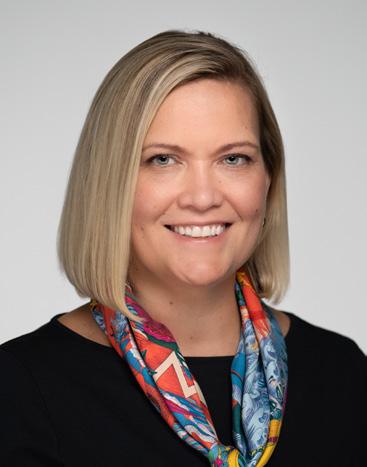

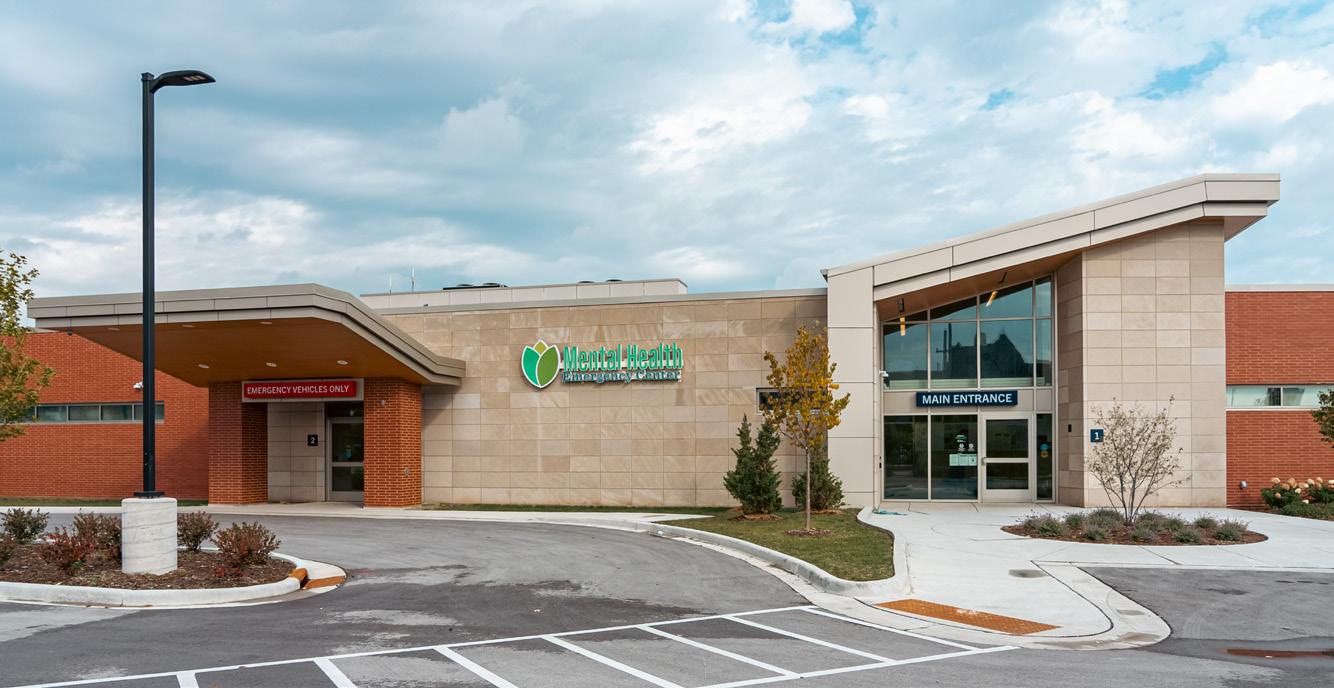
It took years of conversations and negotiations to get the four health systems on board with a joint venture to develop a new, psychiatric emer gency center, now known as the Mental Health Emergency Center. But the reality all along was that 50% of patients at PCS were there volun tarily, and therefore, not technically the county’s responsibility, so it was clear that joining forces with private providers was the most logical way forward, said Lappen.
From a business perspective, health systems are incentivized to minimize the volume of behav ioral health patients in a hospital facility that is not specifically equipped for psychiatric patients.
“There’s a whole thing about milieu in hospitals and having people with more intensive behavioral health needs can really disrupt that, so you can’t fill as many beds,” said Hughes. “The evidence on the treatment side is that (non-psychiatric patients) are going to be better served with better outcomes and fewer costs.”
One major difference between crisis behavior al health care and most other medical emergency care is staff expertise.
“We don’t have psychiatrists who routinely staff the emergency departments and are avail able there 24/7 to see psychiatric patients. We have them available for consultation as needed but that’s not a resource that is universally readily available at every ED in town,” said Carrie Killoran, president of Advocate Aurora Health’s greater Milwaukee patient service area. “It’s highly unlikely that we
could recruit enough folks to be able to staff at the level we’d need to have the expertise in a distributed model across every ED. We’d all be competing for the same talent and re sources.”
What’s more, psy chiatric facilities are constructed with spe cific requirements geared toward keeping patients safe. For example, spaces and objects must be liga ture-resistant, or void of points where cords, ropes, bedsheets or other material could be fastened, re sulting in self-harm or suicide.
Not all emergency departments are designed that way, and it would take a major investment to remodel every emergency room across the county. Not to mention a crowded emergency room is not an ideal environment for someone experiencing a psychiatric crisis, said Killoran.
It was those kinds of special considerations that the joint venture made when developing the new Mental Health Emergency Center. And those con siderations, among others, are still top of mind for Advocate Aurora as the lead partner and manager of MHEC, overseeing the facility’s day-to-day oper ations, from staffing to bookkeeping to regulatory compliance.
Leadership is accountable to the joint venture’s eight-director board, including four directors repre senting the county and four directors representing each of the health systems. MHEC is expected to deliver care with an operating loss of $12 million annually. Operating shortfalls are split equally be tween the county and the health systems, accord ing to its website.
While staffing remains a challenge for MHEC – and health care providers across the industry –AAH was able to meet the 70-person hiring goal set for the facility ahead of its early September opening.
Killoran, who sits on the joint venture board as AAH’s representative, remembers early discus sions in which the idea of a public-private partner ship seemed implausible. Now, it’s clear that a high level of collaboration between multiple entities is a necessary piece of a modernized behavioral health care continuum.
“All of our partners are stepping up … If we have patients who need hospitalization, the Mental Health Emergency Center – yes, we are a hospital – but the intention is not to have long-stay psychi atric patients,” she said. “If we have someone who comes through, can get stabilized, but we know is going to need inpatient care, finding the right facil ity and disposition for those patients (is important). Initially as we work through those initial referral and transfer arrangements, you get a couple hic cups here and there, but all of our partners and the community in general, including other behavioral health resources, have been coming to the table to do their part and meet that need.”
For Children’s Wisconsin, having a stake in the MHEC joint venture goes hand in hand with a fiveyear plan to invest $150 million in its own mental health services. Earlier this year, Children’s opened the new Craig Yabuki Mental Health Walk-In Clin ic on its Wauwatosa campus for children with ur gent behavioral health needs. That was thanks to a $20 million gift from former Fiserv chief executive officer Jeffrey Yabuki’s family foundation. Craig Yabuki was Jeffery Yabuki’s brother who experi enced undiagnosed depression during childhood and in 2017 died by suicide.
Before the COVID-19 pandemic, one in five children in the Wisconsin was living with mental illness, and the state’s suicide rate was higher than most of the U.S. As of March, visits to Children’s emergency department and trauma center for mental and behavioral health concerns had in creased by 40% since the pandemic’s onset.
“In our mind, every kid (who visits Children’s) has a mental or behavioral health need and the needs vary, and we want to make sure we’re meet ing all of those needs,” said Amanda Quesnell, director of mental and behavioral health at Chil dren’s Wisconsin.

Key to Children’s strategy – especially as it re lates to systemic change – is early prevention.
“We know that mental illnesses, a lot of them start earlier than we think, and they often go un treated and unaddressed,” said Quesnell.
Detecting mental illness early and then deliver ing the appropriate treatment or preventative care through various stages of a patient’s life takes more than just one provider.

“Especially as we want to advance health eq uity and equitable care, we know that we have a
1706 S. 68th St., West Allis 24/7 inpatient care for adults and adolescents. Goal for an average seven-day length of stay is to stabilize, treat and work with patients to develop a plan for continued recovery after discharge.
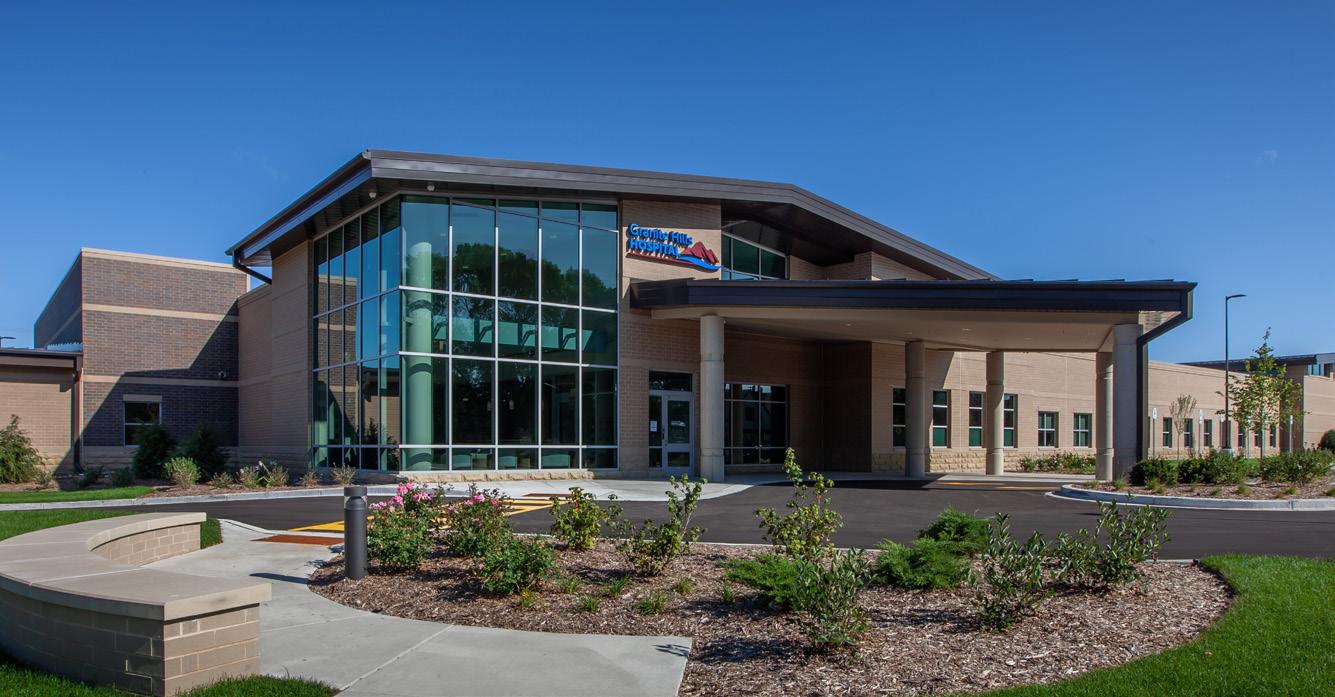
place to partner with the county, partner with the other organizations out there to take a look at our opportunities to enhance system navigation and communication,” she said.
MHEC’s primary inpatient care partner is the newly built Granite Hills Hospital. Last fall, BHS officially handed over its acute inpatient services for involuntary patients to the private behavioral health hospital, located at 1706 S. 68th St. in West Allis.
Inpatient care represents the highest level of care within the behavioral health continuum, reserved for individuals experiencing the most severe mental health crises such as psychosis and suicidal or homicidal ideation.
“The patients that we’re seeing are quite ill … All of our care here is provided in a pa tient-centric model but all with a really high level of trauma-in formed care focus,” said Deanna Meyer, direc tor of business develop ment at Granite Hills. “When we look at it, we really do save lives with the work that we do.”
Delivering a high level of trauma-informed care requires an army of psychiatrists, internal medicine physicians, specialists, certified clinical pharmacists, social workers, psychologists, ther apists and other clinical support staff working around the clock. Patients typically stay an average of seven days.
Granite Hills began opening in phases in No
vember 2021, starting with inpatient services for adults and expanding in late October to adoles cents. The facility also recently launched intensive outpatient programming for adults. At full capaci ty, the hospital will service 120 beds, but for now, occupancy is capped at 40%, or up to 24 adult and 10 adolescent inpatients. That’s due in part to staff ing levels also lagging at around 40%, or 138 em ployees.
“Just as any other business is struggling with workforce and staff, that’s truly our greatest chal lenge right now is staffing. For us to continue to grow and provide services to the community, which are needed, we need to continue to hire staff,” said Meyer.
She pointed to competition within the behav ioral health job market. The collective psycho logical impact of the COVID-19 pandemic drove demand for mental health services, widening the array of employment options within the industry.
“We’re all competing for talented staff to join our team,” said Meyer. “It’s a little bit of a catch-22. We’re here to serve patients, but we need more peo ple to do the work.”
Once a patient is stabilized at Granite Hills, they will be discharged to continue treatment in an outpatient or community setting. Determining that next step starts before a patient is even admit ted, said Meyer. Still, social services employees at Granite Hills say it can be “extremely difficult” to connect uninsured or underinsured patients with follow-up care in a timely manner due to funding issues or a lack of providers that take a patient’s in surance.
Those are the kinds of systemic gaps the coun ty is looking to fill by moving services “upstream,” providing services before more intensive and cost
“The idea was that we would continue to grow our crisis mobile system – and we would use some of the money that we would be saving by not op erating a hospital that was overbuilt and cost us $32 million dollars a year – so that the county could really get into the business of prevention and crisis (services),” said Lappen.
While the joint venture with the area’s four health systems – and the contract with Granite Hills’ operator Universal Health Services Inc. –marks a historic milestone in the path to overhaul an outdated system, especially in a region known for a siloed approach to addressing systemic chal lenges, it’s just one piece of the puzzle, Lappen said.
“Frankly, if this is going to work, it’s gotta be a really small piece because our investments are upstream from there,” he said. “I always say, for in stance, once you call 911, our opportunities to pro vide alternatives really shrink. If we get called by family when they’re concerned about a loved one well before it gets to that level of care, we could pro vide a lot more opportunities and choices for peo ple, so we have focused our efforts on reducing the barriers to accessing care upstream.”



In anticipation of the transition of emergen
cy and inpatient services from the Mental Health Complex to MHEC and Granite Hills, the county has worked for the past several years to bulk up its presence within the broader community by ex panding crisis mobile services and response teams, opening crisis respite centers and placing teams at four federally qualified community health centers in high-risk neighborhoods. Those efforts are al ready yielding positive results. From 2010 to 2021, psychiatric crisis service visits decreased 53.2% and adult inpatient admissions fell 76%, according to BHS.
For a clear demonstration of what the county’s work within the community actually looks like, look no further than the former Badger Mutual In surance Co. headquarters building on Milwaukee’s south side. Sixteenth Street Community Health Centers opened its new behavioral health clinic there, at 1635 W. National Ave., last winter, and BHS moved into a 5,000-square-foot leased space soon after.

Enter the building’s shared lobby area through the front door, marked with side-by-side BHS and Sixteenth Street signage: To the left is the county’s crisis services, including psychiatric assessment, medication evaluation, peer support services, counseling and referrals to outpatient clinics; to the right is SSCHC’s outpatient behavioral health






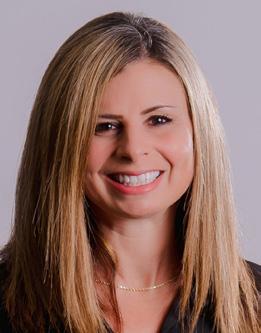
services, substance use disorder services and ADHD treatment pro grams.



Co-locating these complementary ser vices allows the facil ity to serve a broader array of patients – who may have otherwise had to trek out to the county’s Mental Health Complex – right in their own community, said Ma ria Perez, Ph.D., vice president of behavioral health at SSCHC and chair of the Milwaukee County Men tal Health Board. She described patient referrals between the two entities as “seamless.”





“County works really well at stabilizing them; they often then get transitioned to us for their out patient care,” said Perez. “… If (a patient) is a walk-in and they are in distress, that calls for BHS because they can quickly do an assessment and determine, ‘Is this person a danger to themselves, a danger to others? Are they feeling unsafe?’
“Some people are really in distress, and they might say, ‘I feel like I don’t want to live anymore, my life is not worth it.’ But if you sit and talk with them, you learn that they are about to get evict
Make plans to attend the 22nd annual Economic Trends on January 26th to find out what lies ahead for the economy in 2023. Economist Michael Knetter Ph.D. and leading industry experts will provide their perspectives and answers to these questions and more. Seating is limited – register today at biztimes.com/trends.







ed, their electric just got shut off, they are facing a chronic illness, their child is truant in school, their parents are addicted. Often times in an assessment, it becomes obvious that what they need are re sources … that address those social determinants of health,” she added.
That’s not to minimize the seriousness of acute mental illness or suggest there is a quick fix for en vironmental stressors often faced by underserved communities. Perez, whose career as a psychologist spans three decades, believes the problems are only getting worse, and more complex.
“This is going to get worse because it’s not just mental health. There’s a lot of anger, there’s a lot of rage, there’s a lot of divisiveness in our country. I’ve never in my lifetime seen so many people being di vided. School shootings, I never knew that when I was little,” she said.
Still, Perez somehow finds ways to remain op timistic.
“What makes me hopeful are the partnerships, and I think it’s very, very hopeful that we have (or ganizations) like Aurora, like Froedtert, like BHS, Sixteenth Street. We’ve got (the county’s Depart ment of Health & Human Services) at the table, we have so many loving, caring people cooperating. Private, public partnerships. Who would have thought?” n
1635 W. National Ave.,

Walk-in crisis and non-emergency outpatient services for children, adolescents and adults, with or without insurance coverage. Goal is to bring a wide range of treatment options closer to patients and connect them with other community resources. Similar service model offered at Access Clinic East and at Crisis Resource Centers on the south and north sides.
Take your business to new heights with an elite team of peers
The hardest climb is not Denali, K2 or Everest. The hardest climb is the mental climb, the internal struggle. It lies deep within you as a CEO or business owner. And to break new ground, you have to show up big every day — especially when the headwinds are strong and uncertainty lies around every bend.








Living a Life of Climb demands your best. It requires resourcefulness and the courage to make tough decisions. It calls for a relentless drive to push forward past every challenge and obstacle. It means you lift as you rise to elevate everyone around you along the way.
As the world’s largest CEO peer advisory and executive coaching organization, Vistage has helped guide high achievers along their leadership journey for 65 years — brave leaders running small and midsize businesses against all odds. They climb with a trusted team of peers and an accomplished guide who knows the lay of the land. It’s a proven approach that’s helped 100,000+ business leaders around the world plant ags on their greatest dreams and ambitions.
If you’re ready to reach new summits in business and in life, the path starts here.
JOIN THE CLIMB Learn more at Vistage.com/iClimb
Area wellness professionals share tips for managing the stresses of modern work
 BY LAURA BENGS, for BizTimes
BY LAURA BENGS, for BizTimes
A SWIFT MOVE to the virtual world enabled many businesses to stay afloat during the COVID-19 pandemic, but virtual work may be eat ing away at the wellness of today’s workforce.
Dr. Himanshu Agrawal, associate professor of psychiatry and behavioral medicine at the Medi cal College of Wisconsin, says one of the worst side effects of virtual work is “a complete obliteration of any boundaries.”
“There is this allusion that (virtual work) has led to more autonomy, but it’s actually the oppo site,” Agrawal says. “There are no work hours anymore. The status quo has become: You need to work even harder to maintain balance.”
Pushing to this degree often comes at the cost of neglecting one’s own needs, according to Susan Lubar, president and founder of Milwaukee-based Growing Minds, an organization that trains schools, organizations and businesses in mindful ness practices.
“Many of us feel like we need to push through as hard as we can to achieve,” Lubar says. “When we push through and override our own needs and the needs of certain relationships, we begin to feel depleted, empty and really overall discon nected.”
These negative feelings could also be products of the body’s response to continued stress, says
Dr. Tiffany Mullen, chief executive officer and founder of Milwaukee-based Vytal Health – a telehealth-based platform for functional and inte grative medicine.
When faced with stress, Mullen says our bod ies produce two hormones: adrenaline and corti sol. The production of adrenaline protects against physical danger by creating the “butterflies in the stomach” feeling that motivates fight-or-flight re sponses. The production of cortisol is intended to offer anti-inflammatory support in the event of an injury.
However, the body can’t distinguish between the stress it’s designed to respond to, things like physical danger, and modern-day work stressors like full email inboxes and challenging interac tions. The body, therefore, ends up producing levels of cortisol well beyond its need, resulting in difficulties with sleep, a lowered immune system, unexpected weight gain and feelings of anxiety, depression or hopelessness.
Fortunately, Lubar says the brain has what is called neuroplasticity – the ability to reform itself moment by moment.
“Every experience rewires your brain in that direction,” said Lubar. She says mindfulness can be a helpful tool to start steering our brains in the right direction.
Practicing mindfulness involves taking brief moments throughout the day to check in on thoughts, moods and feelings, both physical and emotional, Lubar says. After using a moment of self-awareness to become grounded, Lubar says mindfulness entails setting new intentions for how you’d like to show up in any moment or situation. Mindfulness can be used in the mo ment when responding to stress or proactively at planned intervals throughout the day.
Lubar says mindfulness can also reframe the quest for better work-life balance. Rather than focusing on a division between these parts of life, mindfulness can help establish an overall sense of balance – at work, at home or wherever you are. This sense of balance can be especially beneficial when working with others, especially for those in leadership roles, Lubar says.
“If you can stay grounded in your executive functions – your highest level of thinking – you can hold the space for other people until they have a chance to ground themselves again,” Lubar said. One way she facilitates mindfulness among her own team is by starting meetings with two minutes of silence, allowing time for attendees to pause and set deliberate intentions
for the meeting.
Agrawal says in his experience, being open about his own mind fulness practice sometimes inspires others to exercise more self-care. He says if taking time to practice mindfulness puts him a few minutes behind schedule, he finds his stu dents and colleagues respond with
like, “Good for you,” and, “I should really do that more.”
Engaging in mindfulness is a good starting point for finding bal ance, Agrawal says. The next step –making changes to reach your ideal state – can be more challenging, and it looks different for everyone.
One way to manage the impact of stress is by being intentional about where you’re putting your focus, says Lubar. A consistent focus on negative thoughts and problems produces negative feelings, yet an intentional focus on gratefulness or positive attributes produces more positive feelings.
Agrawal also recommends be ing intentional with your time. He’s found success with “leasing” his time – a technique introduced by Sig mund Freud. This practice involves scheduling the day with dedicated periods of time in which you are available to others and those that are off limits, fiercely protected for time with family or individual pur suits. Agrawal says his wife was an incredible mentor and supporter for him as he applied this framework to his own life.
Discussing stressors with a spouse, a friend, a loved one or a pro fessional can be incredibly helpful in coping with stress and realizing we’re not alone, Mullen says.
“We don’t talk to each other about this stuff,” Mullen says. “We’re not vulnerable with each other. Re ally leaning on friends and family who you trust and feel safe with to explain your situation goes a long way. Let’s not be isolated anymore.”
If symptoms of stress reach a point that they’re greatly impacting
interactions with people you love, involvement with something that’s important to you or carrying out daily functions, Agrawal says men tal health support can be a valuable resource to guide rebalancing ef forts. He says it’s important for peo ple to accept that they don’t need to overextend themselves to be a suc cessful worker, parent or student. Because it can be difficult to recog nize symptoms of stress and burn out while wading through the thick of it, Agrawal recommends schedul ing monthly wellness self-checks –much like routine scheduled medical care – to check in on the emotional and spiritual self. He says this can be done informally, or using a variety of available online resources.
Taking time throughout the day to check in with basic physical needs – like eating healthy foods, drinking water or finding opportunities to be active – can also positively impact wellness, Mullen says.
She says paying attention to your sleep schedule is one of the best ways to improve overall wellness. It can bring “great perspective, more resil iency and more energy,” she said.
Strategically creating a work space that tends to the stressors of work is another important step, according to Tonya Dybdahl, space planning and design manager at Na tional Business Furniture.
She says a current trend among businesses is designing a mix of dif ferent spaces for different types of work. For remote workers, design ing home workspaces with light er-colored paints, artwork, plants, ergonomic furniture and natural lighting can help accommodate both the emotional and physical de mands of work.
Mullen says it’s important not to feel pressured to change everything at once. Adding wellness practic es may feel like adding more to the plate, but even just changing one thing at a time can positively im pact our overall sense of well-being. Agrawal adds that simply including wellness in your routine can some times make all the difference. n
Discounted rates, quality employee benefits and surplus refund*potential when medical claims are lower than expected. They’re all possible with a UnitedHealthcare Level Funded health plan for your business through the Metropolitan Milwaukee Association of Commerce (MMAC).
*Among the UnitedHealthcare Level Funded plan sponsors who were MMAC members, 28.7% received a surplus refund in 2021, the average of which was $9,300. UnitedHealthcare internal reconciliation analysis, Jan. 1, 2021 through Dec. 31, 2021. Please consult a tax and/or legal advisor to determine if, by receiving this refund, there are any restrictions or obligations. Surplus refund available only where allowed by law. Administrative services provided by United HealthCare Services, Inc. or their affiliates, and UnitedHealthcare Service LLC in NY. Stop-loss insurance is underwritten by All Savers Insurance Company (except CA, MA, MN, NJ and NY), UnitedHealthcare Insurance Company in MA and MN, UnitedHealthcare Life Insurance Company in NJ, UnitedHealthcare Insurance Company of New York in NY,
A LETTER FROM THE PUBLISHER:


For nine years now, BizTimes Media has proudly recognized the work of southeastern Wisconsin nonprofits and philanthropic corporate citizens through our Nonprofit Excellence Awards, held this year on Nov. 4.


We recognize that a strong and sustainable nonprofit industry is needed to help our city and region flourish. That’s why we highlighted 29 organizations, leaders, donors and companies each doing their part to make our community better as winners and finalists at our awards event. We hope the stories of the work that these organizations and individuals do in areas like health care, education, housing, the arts, trauma and more inspires you to make a difference in any way you can.

You can watch the program on demand at biztimes.com/npea.
Thank you to Wintrust Commercial Banking at Town Bank, our platinum sponsor, and Lauber Community Partners, our gold sponsor, for helping us put the spotlight on these model citizens.

Dan Meyer, Publisher, BizTimes Media
As Wisconsin’s Bank for Business®, we focus on giving back and building strong relationships within all the communities we serve across Southeastern Wisconsin. We believe it’s our responsibility to invest in local economies by supporting the organizations and nonprofits that enhance our home state, being a true partner to Wisconsin’s businesses.
We are incredibly honored to have served as the Platinum Sponsor of the 2022 BizTimes Media Nonprofit Excellence Awards. We enjoyed celebrating the philanthropic achievements of Southeastern Wisconsin's top nonprofit leaders and corporate citizens. To the 2022 nominees and award winners: your creativity, innovation, dedication, and leadership have left a lasting impact on our community. Congratulations, and thank you for all that you do.
Lauber Community Partners is thrilled to celebrate the leadership and success of this year’s BizTimes’ Nonprofit Excellence Awards Finalists and Winners. Our firm is fiercely committed to supporting the nonprofit sector, because your success is vital to our community and the world we’re leaving behind for future generations.
We applaud your collective contributions to our region and to elevating the impact of our nonprofit sector overall. Congratulations again!
Julie Tolan, President of Lauber Community Partners
At Town Bank, we’re not only Wisconsin’s Bank for Business®, we also focus on giving back and building strong relationships within all the communities we serve. Nothing is more exciting than finding others who are just as passionate about this area and all of its potential, which is why we’re thrilled to sponsor the 2022 Nonprofit Excellence Awards and honor those who continue to propel Southeastern Wisconsin forward.
The nominees have all worked toward one goal: making the place we call home even better. That’s a mission we can all stand behind. As a bank built for Wisconsin, we’re proud to get involved, do our part, and help make a difference. We’re even prouder to help celebrate those leading the way to a bigger, brighter, and better Wisconsin.


The 2022 BizTimes Media Nonprofit Excellence Awards program started with a Q&A featuring Jim Kacmarcik and Gretchen Jameson of Kacmarcik Enterprises, which recently opened the Kacmarcik Center for Human Performance. Kacmarcik Enterprises’ companies have a long track record of philanthropy through Hometown Heroes, the Kids2Kids Toy Drive and other initiatives. Its flagship business, Grafton-based Kapco Metal Stamping, was the 2019 Corporate Citizen of the Year award winner. As group president for human performance and social impact, Jameson is leading the effort to establish KCHP, which will not only support learning and development at Kacmarcik Enterprises but is also planning to partner with local nonprofits to bolster their leadership development. The following is a portion of Kacmarcik and Jameson’s conversation with BizTimes Milwaukee managing editor Arthur Thomas, edited for length and clarity. See the full conversation at biztimes.com/npea
How did you go about nourishing Kapco's philanthropic efforts?
JIM KACMARCIK: “I began to be a little bit more purposeful as to the people I started to hire and surround myself with. Everybody's got a different mission and a different ap proach. Inside our walls, we talked about it a lot. It's part of our corporate metrics, the things that we do, and you can't really push that on anybody, you've just got to lead and
hope that more and more people follow. ... Even in the interviewing process, we learned a little bit more about who they were as peo ple and what their fields were and what their missions were because, yeah, we're a metal manufacturing company and absolutely we need to manufacture money to be able to do things, so we have to have great people in that space, but we're looking for people that had a mission to do more.”

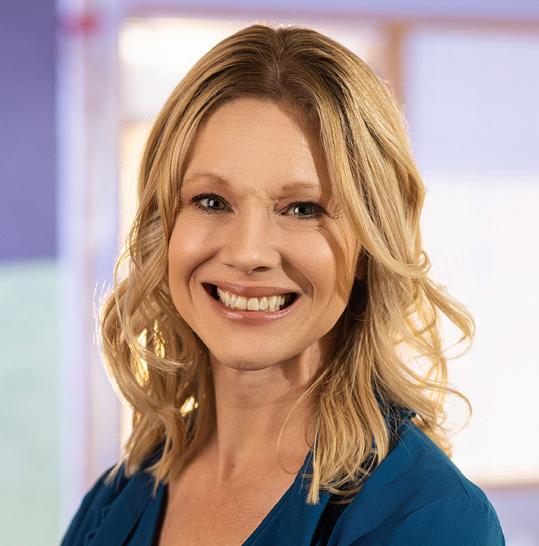

GRETCHEN JAMESON: “For me, having spent two-and-a-half decades serving primarily in faith-based, nonprofit spaces (including Concordia University Wisconsin), it really was non-negotiable. If that hadn't been a part of what the organization represented and the vision for the organization beyond
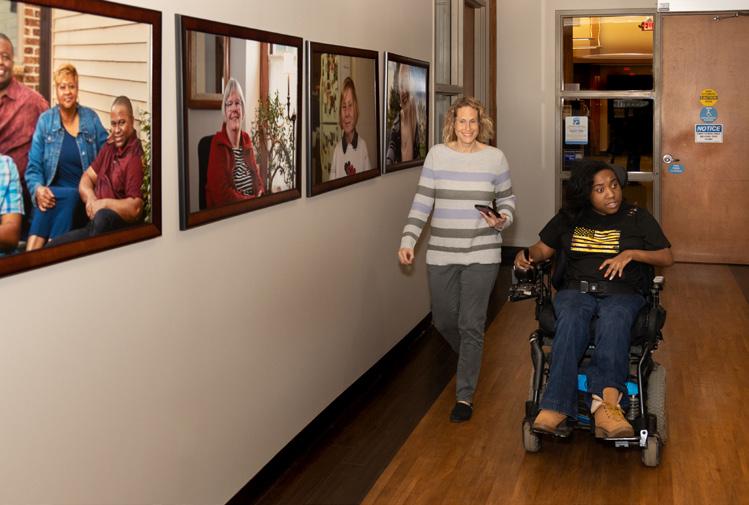
dollars and cents ... I don't know that we would have had an ongoing conversation. I think it’s that key that Jim mentioned in our own hiring, often we talk about, and especially those of us in nonprofit spaces, we talk about, 'Is this indi vidual a mission fit?' ... A few years ago, I began to change that question as I would interview people and even change it for myself and my question became not ‘how are you a mission fit for our organization?’ but how is our mission, vi sion, value ... how are we a fit for how you see the world, for your worldview, where do we puz zle piece into what your ‘why’ is all about? It's subtle, but it changes the game.”
One of the things you were tasked with in join ing Kacmarcik Enterprises is launching the Kacmarcik Center for Human Performance.
Let's start with, what is KCHP?
JAMESON: “At the heart of it, Kacmarcik Center ... we're purveyors of an idea and that idea is a vision of a world where every person can pursue their best future toward a common good. And, to do that through all of our businesses.”

Jim, why take on this bigger mission?
KACMARCIK: I'm a guy who believes that what
our individual possibilities could be or what a business could be, that we somehow limit our selves. We think we can get to this peak and that's what we kind of feel like, ‘Wouldn't that be something?’ With this team, we have no moun tain peak, we can do so many things.”

What are the values of what you're trying to do?
JAMESON: “The Kacmarcik Center operates on three core values of opportunity, growth, and well-being, we call it human flourishing. ... With the social impact piece, it’s got to be catalytic disruption, it has to have replication bias, it needs to elevate a partnership model, it has to focus uniquely on southeastern Wis consin at this time in the space of children, youth, families, and it’s going to be provid er-focused. We're not interested in coming into this space and usurping or going around or starting to intersect in communities where great work already happens and should hap pen, on the ground in the communities, with the people who know those communities best. What we know how to do ... helping peo ple apply learning-based solutions to flourish, individually and systemically. So, how can we serve providers so their people flourish and
therefore impact their communities in greater, deeper, bolder ways?”
If I'm a nonprofit, what's it going to look like if I work with KCHP?
JAMESON: “The first thing would be a conver sation. It has to start there. Sometimes we just throw tactics at people. Let's talk first about what the goal is and then reverse engineer and get you there through learning-based ap proaches that help you develop so that you own your own capacity.”

What is the most common lacking leadership element that limits nonprofit community im pact?


JAMESON: “Having served in nonprofit space for 25 years, I think it’s often bandwidth, it's not necessarily competence. We think about lead ership in terms of competence and capacity. It's often capacity. And it’s often, I would submit, in nonprofits, rarely a challenge around motiva tion. I think it’s helping our organizations think differently and think creatively and lean into and learn how to develop and build and drive their own sense of capacity as leaders and organiza tions, to really flourish more vibrantly.” l

Learn how a provider-sponsored plan can help you maximize your benefit investment.
Talk to your benefits advisor or call us directly.
Melanie Schoeneman Vice President, Commercial Sales (608) 332-0444
GROWING UP in the 1940s, Stephen Marcus and his sister, Diane, would often screen films for their friends in the basement of the family’s Oshkosh home. They sold popcorn and soda and donated all the proceeds to local charities. From a young age, Marcus was taught the im portance of giving back.
“We did this two or three times a week, and, the fact is, we didn’t invent the idea, our parents invented it; it came from them, and perhaps their greatest contribution has been passing that idea on from one generation to the next,” said Marcus, now 87 and chairman of The Marcus Corp., which was founded in 1935 by his father, Ben Marcus, with the pur chase of a single movie theater in Ripon.
As the Milwaukee-based entertainment and hospitality company has grown over nearly eight decades and three generations of family leadership, philanthropy has remained a cornerstone of company culture – both through corporate- and employee-led giving. Marcus credits his parents, who believed it was their responsibility to help create stronger communities for their employees and custom ers and emboldened those around them to be “givers” rather than “takers.”
“It started with (my parents) teaching my sister and myself the important role each of us could play not only in helping others in need, but also encouraging those who are part of our work environment to make a lifetime com mitment to do the same,” said Marcus.
Today, The Marcus Corp. employs about 7,500 people across two divisions: Marcus Theatres, with 1,064 screens at 85 locations in
17 states, and Marcus Hotels & Resorts, which owns and/or manages 17 hotels, resorts and other properties in nine states. The publicly traded company is currently led by president and chief executive officer Greg Marcus, who succeeded his father in 2009. Steve’s other son, David Marcus, serves as managing direc tor and CEO of Marcus Investments.
Marcus Corp.’s philanthropic arm, the Marcus Corporation Foundation, has donated more than $10 million to nonprofit organiza tions over the past decade. Its giving primarily targets organizations in the greater Milwaukee community with specific focus on economic and community vitality, health and human services, and education and conservation. Each year, the foundation hands out the Ben Marcus Humanitarian Award to employees who go “above and beyond” in their volun teer efforts. As part of the recognition, the foundation makes a donation to a charity of the recipient’s choice.
Beyond corporate giving, many members of the Marcus family have been involved in what Steve describes as a “lifetime of service,” through a wide range of contributions to the greater Milwaukee community over the years.

Ben Marcus held leadership roles with the Milwaukee Symphony Orchestra, the Greater Milwaukee Committee, Mount Sinai Medical Center, the Milwaukee Jewish Federation, the United Jewish Appeal, and he founded the Variety Club Children’s Charities in Milwaukee.
The Marcus Performing Arts Center in Mil waukee is named in recognition of a naming rights contribution from the Marcus Corpo
ration Foundation more than 25 years ago, which provided funds to renovate and expand the facility, and the family has remained a major supporter for the venue. The Marcus family also was the naming rights sponsor for the Marcus Amphitheater, now known as the American Family Insurance Amphitheater, at the Summerfest grounds. In 2017, the family donated the Warner Grand Theatre in down town Milwaukee to the Milwaukee Symphony Orchestra, which converted it into the Bradley Symphony Center.
In addition, Steve Marcus was the driving force behind Sculpture Milwaukee, an annual public art display along Wisconsin Avenue in downtown Milwaukee that began in 2017.
Steve’s late wife Joanie, who died in 2008, was a longtime board member of the Jewish Federation and helped to raise hundreds of thousands of dollars for that organization with multiple campaigns. She was also a longtime docent and member of the Milwaukee Art Mu seum. Today, there is a wing at the museum named in her honor.
“My late mother-in-law Joanie Marcus set the tone for the women in our family,” said Linda Marcus, who is married to Greg Marcus. “My father-in-law Steve credits her and his parents for creating his love of art, which ultimately led to his creation of Sculpture Milwaukee.”
Linda Marcus is a co-founder of Saint Kate – The Arts Hotel, which partners with numer ous local arts and culture organizations that utilize space to further their work and reach. One of those is the Museum of Wisconsin Art, where Linda has sat on the board for the past two years. Her previous board memberships include the Milwaukee Rep and the Milwaukee Institute of Art & Design.
Janice Marcus, who is married to Steve, is actively involved in socially engaged organiza tions like the Nehemiah Project, the Women’s Coalition of Milwaukee, the Milwaukee Art Museum and the Milwaukee County Histor ical Society. Melina Marcus, who is married to David, has served on boards such as the Women’s Division, Milwaukee Jewish Feder ation and the SEED Foundation. She is the co-founder of Rebel Green, which has formed partnerships over the years with organizations, including Feeding America.
“I’m not only very proud of the tradition of giving back that the Marcus Corp. commu nity has created, but also of the role that the whole Marcus family has played in it,” said Steve Marcus. l
Reimagine your organization and shift from merely surviving to thriving.

Leading a nonprofit has never been easy. But in these times of unprecedented change, the stakes are higher than ever, and passion for mission isn’t always enough to sustain long term growth
Our team has extensive experience in leading change and in the interdependent facets of nonprofit management. We understand the necessary interplay between culture, strategy, human resource management, finance, communication, and fund development. Our integrated model delivers a more efficient and effective experience for our nonprofit partners so you can stay focused on your mission and make the most of limited resources.
CHALLENGE. CHANGE. THRIVE.
info@lauber-partners.com | www.laubercp.com

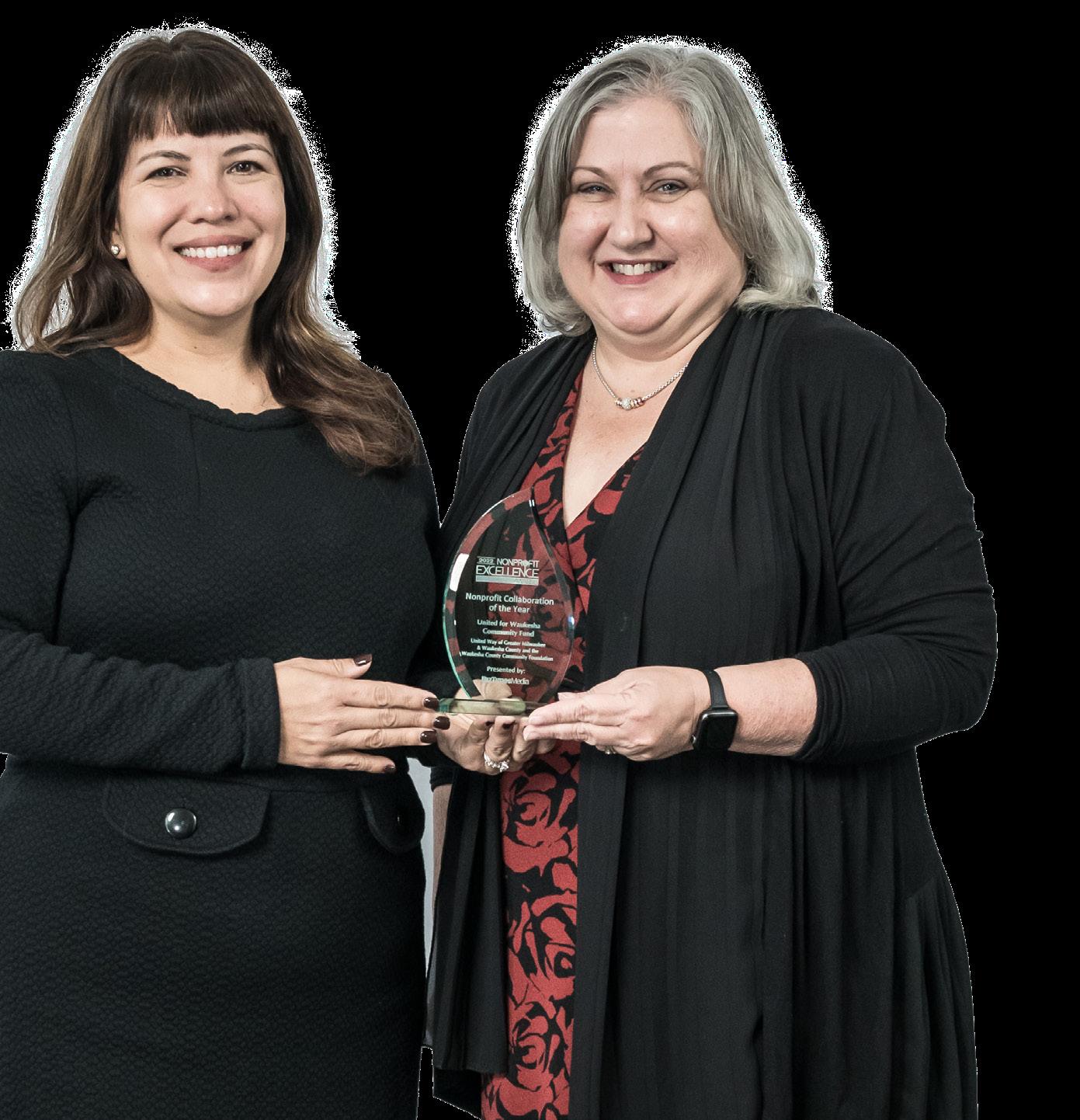
THE UNITED for Waukesha Commu nity Fund was formed in 2021 to support the victims and families impacted by the November 2021 Waukesha Christmas Parade massa cre and to help the com munity heal.
A partnership be tween United Way of Greater Milwaukee & Waukesha County and the Waukesha County
Community Foundation, the fund has raised over $6 million from donors in all 50 states and 18 countries, along with matching gifts from lo cal organizations and community foundations. To date, proceeds from the fund have assisted 560 individuals.
“While the tragedy was undoubtedly one of the darkest moments our community has experienced, the aftermath demonstrated the outstanding generosity and caring of our neighbors, family and friends,” said Dan Herda, director of communications for United Way of Greater Milwaukee & Waukesha County. l
“What happened is not going to define our community. It is the response to what happened that will define our community. We are a community committed to caring for each other.”
–MelissaBaxter,president,WaukeshaCountyCommunityFoundation
FOR-M, a collaboration between several local organiza tions including MKE Tech Hub Coalition, We Pivot and The Commons, aims to increase the number of technology start up companies in the region by providing founders with seed funding and other resources to help them be successful.
Since the program’s inception in 2020, more than 200 individuals, many of them women and people of color, de mographics traditionally underrepresented in the technology industry, have participated in the program, leading to the for mation of over 100 companies.
FOR-M alumni, many of whom have focused on providing technology-based social impact and enterprise solutions to clients, include local firms Afrocharts, CrossKudi, Talimer, and uncrowd.io.
“One of the most rewarding parts of FOR-M is the commu nity that has formed among a very diverse group of founders,” said Kathy Henrich, chief executive officer of MKE Tech Hub Coalition. “Founders have gone on to raise funds, participate in accelerators, grow jobs, and even exit their companies successfully. This is an economic driver for the future of the region.” l
The Journey House Construction & Design Academy helps close Milwaukee’s skilled labor gap by preparing youths, many of them BIPOC (Black, Indigenous, People of Color), for careers in the construction and architectural in dustries.
The academy, a collaboration between Journey House Inc., All Hands Boatworks, Teens Grow Greens, Habitat for Humanity and Adams Garden Park, allows youth to partici pate in vocational training programs and paid internships. Additionally, the academy offers financial coaching and trau ma resilience coaching.
Besides beautifying local communities, engaging in academy projects offers emotional benefits for youth, who take pride in their accomplishments.
Founded in 2005, the Milwaukee Youth Arts Center (MYAC) functions as a gathering space for the next gener ation of local artists, offering arts and youth development programming.
The collaboration offers space, technical assistance and operational knowledge to partners First Stage and Milwau kee Youth Symphony Orchestra, enabling the organizations to provide arts education to young people in a cost-effective manner.
A $14 million capital project overseen by MYAC has al most doubled the facility’s space and added renovations fo cusing on acoustic and lighting requirements for performing arts organizations. By giving input to the project’s architects and contractors, MYAC students developed leadership and advocacy skills.
Niehaus“They can point out what they have completed in their neighborhood for their parents, family members, and friends to see,” said Roberta Oldenburg, senior project development manager for Mortenson, a construction and real estate devel opment company that partnered with the academy to work on a recent Habitat for Humanity construction project.
Academy youth projects include exterior home renova tions, tiny home building and a fence installation at Adams Garden Park. l
“It is only by collaboration that MYAC’s partner groups are able to unite under the MYAC umbrella to best meet the needs of Milwaukee’s young artists,” said Christopher Due, grants manager for the Milwaukee-based Burke Foundation. “Instead of competing for funding or students, they united, and now each has a greater impact than they would individ ually.” l



Tim Kight, founder & CEO of Focus3, discovered the power of The Performance Pathway: Leaders create the culture that drives the behavior that produces results!


WITH PRESIDENT and chief executive officer Marci Boucher at its helm, Milwaukee-based In dependence First helps develop self-sufficiency among people with disabilities by assisting with access to basic needs such as food, health care and housing.
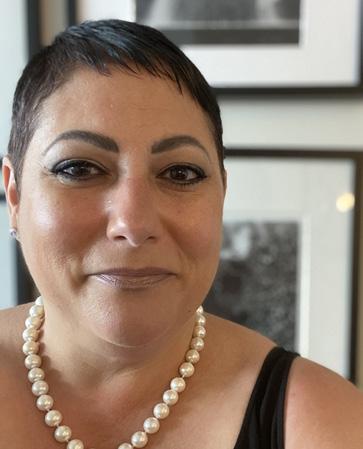
People with disabilities were particularly impacted by the COVID-19 pandemic, many of them losing jobs and housing, which left them unable to pay for necessities such as food and utilities. In addition to securing private and federal funding to expand services for Independence First clients, Boucher forged a
partnership with the City of Milwaukee Health Department to provide a free and accessible COVID-19 vaccination clinic for people with disabilities and mobility concerns.
“Marci exemplifies the top qualities of a great leader, applying her creativity, vision, passion, acumen and collaborative spirit to help people with disabilities in southeastern Wisconsin make their own choices and have control over their lives,” said Billie Torrentt, chief operations officer for GPS Education Partners and board president of Independence First. l
“Some people (with disabilities) are still waiting over a year to get a ramp put into their house. It’s because some contractors don’t want to go in that area of town. So, we have a lot of work to do here.”
–MarciBoucher,IndependenceFirst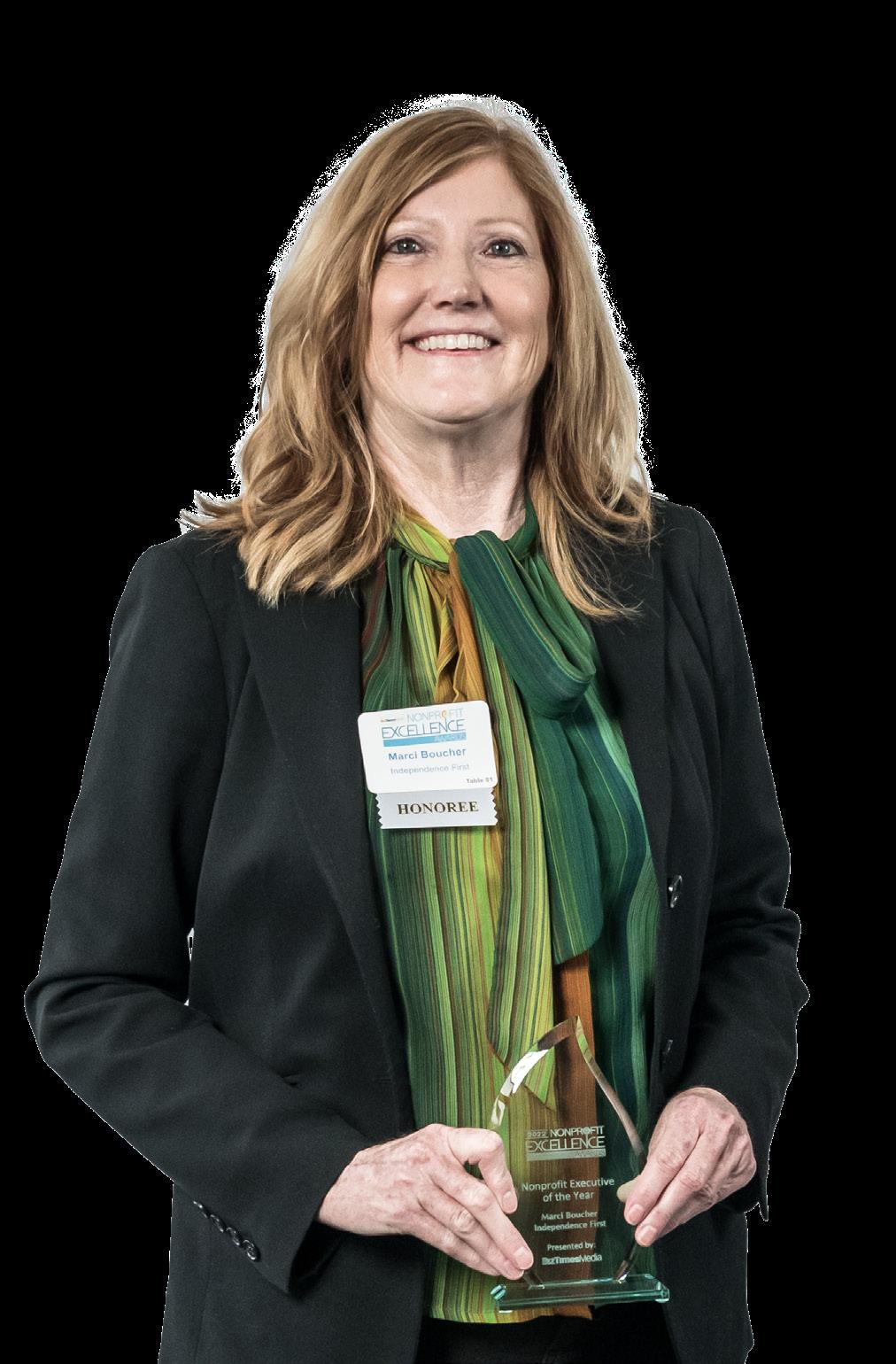

Seven years ago, Mara Duckens stepped into the role of executive director for the Glendale-based St. Francis Children’s Center, an organi zation providing learning op portunities and resources to children with special needs.
“Her forward thinking embodied St. Francis Chil dren’s Center’s core philoso phy that all children can learn, if we can learn to teach them,” said Stephanie Cruz-Cordero, marketing and development director at St. Francis Children’s Center.
Along with developing the center’s new logo and navi gating the organization through the COVID-19 pandemic in a way that enabled all staff members to keep their jobs, Duck ens partnered with local funders and supporters to open the Family Activity Center, a facility offering free support to chil dren with special needs and their families. The Activity Cen ter, which opened in 2016 and originally assisted 23 children, now serves 130.
“When I think of the qualities Mara brings to the orga nization — passion, innovation, dedication and empathy — I cannot think of a more deserving leader,” said Cruz-Cordero. l
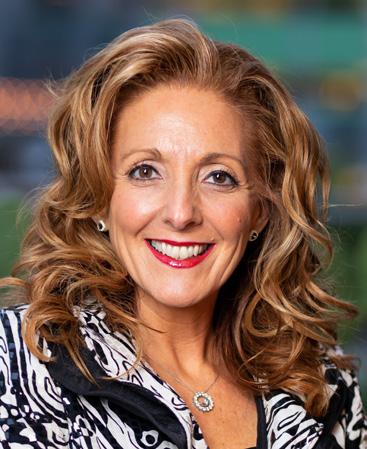
As chief executive officer, Lynnea Katz-Petted leads the nonprofit organization Revi talize Milwaukee in investing in local neighborhoods by providing free home repairs for its clients, many of whom are elderly, veterans or peo ple with disabilities who live on fixed incomes.
“Thanks to Lynnea’s guid ance and vision, they can remain in their homes,” said Steve Jagler, president of Steve Jagler Executive Branding LLC.
During Block Build 2022, 500 Revitalize Milwaukee volunteers repaired 23 homes in the Lindsay Heights neigh borhood in 48 hours, fixing porches, fences, toilets, other plumbing issues and more. Repairs were valued at approxi mately $300,000.
During Katz-Petted’s tenure as CEO, Revitalize Milwaukee has expanded to nine employees. Katz-Petted has recruited board members from a variety of local companies, including Associated Bank, Selzer-Ornst Construction Co., Lippert Floor ing and Tile, and Adaptive Technology Resources.
“Lynnea Katz-Petted’s sheer grit and talents drive Re vitalize Milwaukee, which has grown to become one of the most impactful and consequential organizations in south eastern Wisconsin,” said Jagler. l
Stephanie Reisner, pres ident and chief executive officer of Town of Brook field-based GPS Education Partners, has spent the past 22 years of her career helping high school students develop technical and manufacturing career skills through youth apprenticeships and other programs. These programs connect students with local employers, helping employers reconcile the skilled worker shortage.
A GPSEd collaboration with the Milwaukee Public School District offers students career awareness programs begin ning their freshman year, and hands-on learning opportuni ties their junior and senior years, an initiative which provides workplace exposure and builds employment skills. Reisner has helped launch similar programs in DuPage County, Illi nois and Hennepin County, Minnesota.
“Stephanie’s most astute gift is her effective and com passionate advocacy for students, and uncovering their personal passions and career potential,” said Maggie Pinnt, manager of business development for Pepper Construction. “Her work through GPSEd truly transforms lives and entire communities.” l
KATHY’S HOUSE, an organization that provides affordable lodging for patients and their fami lies who live out of town but must travel to Mil waukee for medical care, opened in 2001 in an 18-room former priests’ house in Wauwatosa.
Many Kathy’s House guests suffer from cancer or critical heart conditions or are in need of organ transplants or trauma care. Although guests are asked to donate funds for the cost of their stay, no one is denied lodging if unable to pay. To date, Kathy’s House has served 27,000 people.
In June 2021, the organization’s new 38-
room house, located at 9101 W. Doyne Ave. in Wauwatosa, opened its doors to guests. Built with $12 million raised through a capital campaign led by Patty Metropulos, president and CEO of Kathy’s House, along with a $6 million donation from Froedert Hospital, the facility includes a meditation room, a courtyard with a gazebo, mul tiple sitting areas, a spacious kitchen and a dining/living space. l
“Most of the families who stay with us come from communities that are under resourced and they face significant barriers to accessing health care and wellness.”
–PattyMetropulos,Kathy’sHouse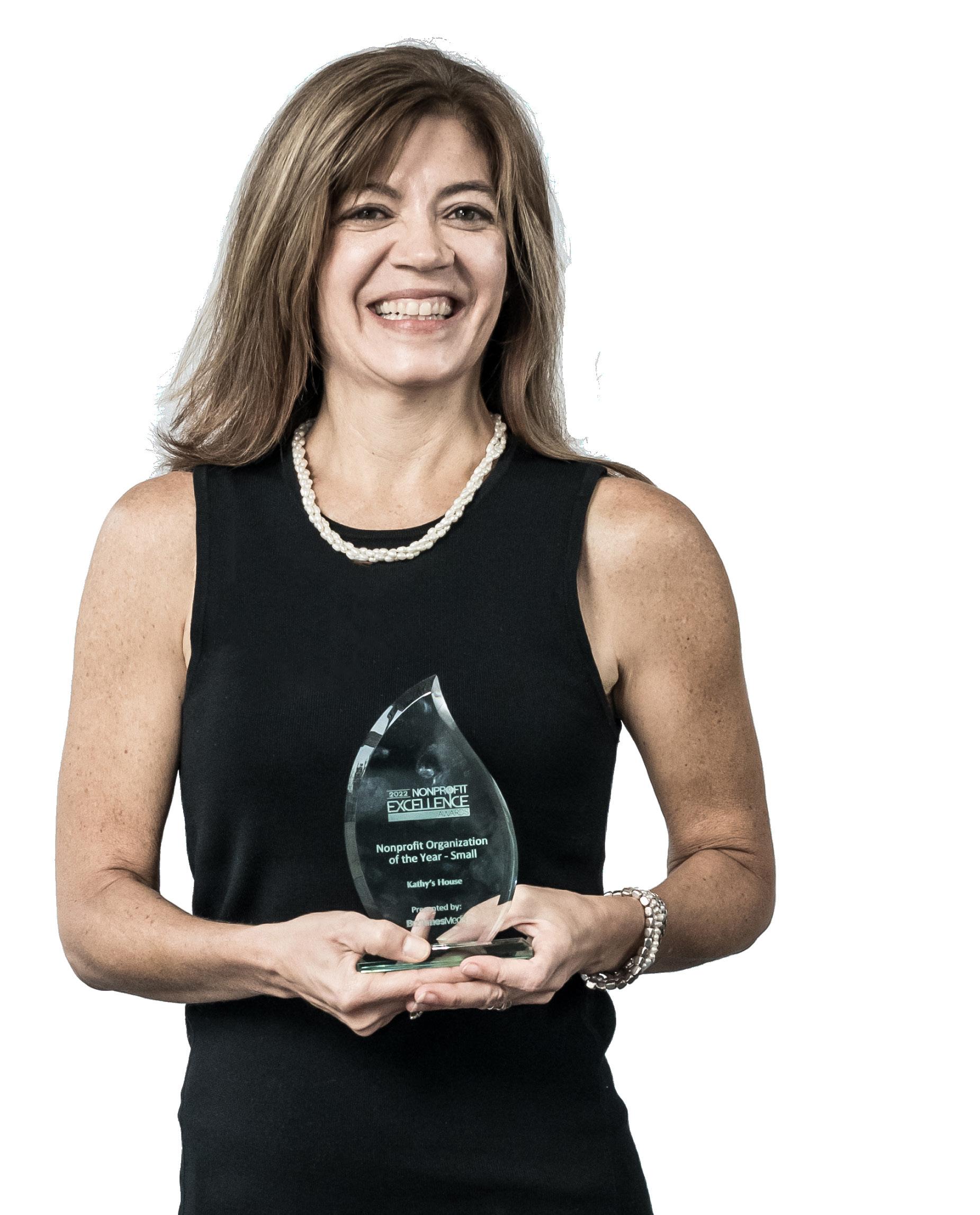
Through vocational programming such as internships, career development and one-on-one mentorships, ALIVE Inc. Milwaukee helps African American students meet their higher education goals and achieve career success.
The organization’s flagship program, MKE Fellows, was launched in 2012. “Ten years later, we have been able to help over 250 African American students reach their full potential to increase equity within the city of Milwaukee and through out the country,” said Jalen Greenlee, engagement coordina tor for ALIVE Inc. Milwaukee.
Alive Inc. Milwaukee’s STEAM Open summer camp nur tures young people’s passion for science, technology, engi neering, arts and mathematics fields by encouraging them to participate in a number of events, including National CSTEM competitions, Gallery Nights, open mics and Maker Faire Mil waukee.
Community volunteering and health and wellness are other major priorities for ALIVE Inc. Milwaukee, evidenced by its summer giving program 12 Days of Christmas in July and Sow & Grow, an initiative focusing on planting urban gardens and encouraging healthy, sustainable eating habits in various Milwaukee communities. l
The Center for Urban Teaching is responding to the criti cal teacher shortage in southeastern Wisconsin by providing aspiring teachers and leaders with one-on-one coaching and professional development services, available in both in-per son and virtual formats.
“The result is, 100% of teacher candidates report an in crease in confidence, competence and character as a result of Center for Urban Teaching’s training and experience,” said Sarah Gilday, director of philanthropy for the Siebert Luther an Foundation.
1,500 students enroll in the annual Center for Urban Teaching summer school program. With several Milwaukee sites, the program trains 250 candidates for teacher and lead ership positions. Students’ reading skills improved by 20%, math skills by 21% during the 2021 summer school session.
The organization focuses on placing teachers and lead ers at schools in underserved Milwaukee neighborhoods. “Research shows the importance of teachers reflecting the students in the classroom as a catalyst for academic success,” said Gilday. “Therefore, Center for Urban Teaching is commit ted to recruiting and training a diverse group of teacher and leader candidates.” l
The Ability Center offers fitness and recreational oppor tunities to people with disabilities throughout the Milwaukee area.
“Its vision is to build communities where all abilities are provided a universal opportunity for health, wellness and recreation,” said Courtney Rogaczewski, managing director of The Ability Center.
As part of its community-based Ramp Up program, The Ability Center has provided area parks and beaches with ath letic and mobility equipment free for public use, including ice sleds, hand cycles and beach wheelchairs. In 2020, the or ganization installed a permanent ramped terrace at Veterans Park in Milwaukee to facilitate waterfront access for people with disabilities.
With several Milwaukee-area locations, The Ability Cen ter’s Open Gyms are open to people of all abilities and their friends and families. Its Adaptive Scholastic Athletic Program features physical education classes and disability awareness assemblies.
Launched in 2022, The Ability Center’s Social program is a peer group for young people with physical disabilities, co-moderated by mentors who have disabilities, which aims to build friendships, increase confidence and more. l
SINCE 1983, Seeds of Health has grown from a women, infant and children program and school enrolling 25 students to an organization serving more than 1,300 at-risk youths with five schools in Milwaukee. It has the only K-12 charter school system in the state and operates its schools through partnerships and charter agreements with Milwaukee Public Schools, the University of Wisconsin-Milwaukee and the WIC Program through the state Department of Health Ser vices.
With virtual learning as the norm during the COVID-19 pandemic, many students’ academic performances were negatively impacted. Seeds of Health responded with its “Resolution of Gaps and Regressions” program. Led by a new
director of curriculum and instruction, the ini tiative includes an expanded integrated mental health school model and a longer school day and year. Students are offered essential sum mer school courses such as enriched math and reading, credit recovery and skill-building.
The organization is also preparing to update instruction practices for the 2022-2023 school year, focusing on practices such as strong relationships, learning design and coop erative learning.
“After more than two years marked by COVID-19 disruptions and challenges, Seeds of Health is, as always, proactively re-calibrating and fine-tuning,” said Joshua Jeffers, founder and CEO of J. Jeffers & Co. l
“(We have been) able to provide for (children) a wonderful education, K through 12, that has allowed them to graduate and become contributing members of society and be able to escape the life many of them have been reared in.”
–MarciaSpector,SeedsofHealth,Inc.
This past year has been a busy one for Centers for Inde pendence, an organization providing resources for people of all abilities to meet developmental goals and live healthy lives.
Recent achievements include the CFI Milwaukee affiliate installing a commercial production kitchen at 27th and Wells Streets. The kitchen is a part of the Concordia 27 program, an initiative to revitalize the Near West Side area of Milwaukee and address issues such as unemployment and health disparities.
“As a crucial component of Concordia 27, this kitchen will increase access to fresh, healthy meals for youth in econom ically disinvested neighborhoods, and will be essential to serve lower-income early education centers and K-12 schools,” said Candace Romano, associate director of marketing for CFI.
CFI has also expanded its crisis mental health care ser vices, opening a third crisis resource center in Milwaukee County in 2021 and increasing services in Waukesha County. l
LARGE NONPROFIT ORGANIZATION OF THE YEAR GOODWILL INDUSTRIES OF SOUTHEASTERN WISCONSIN INC.
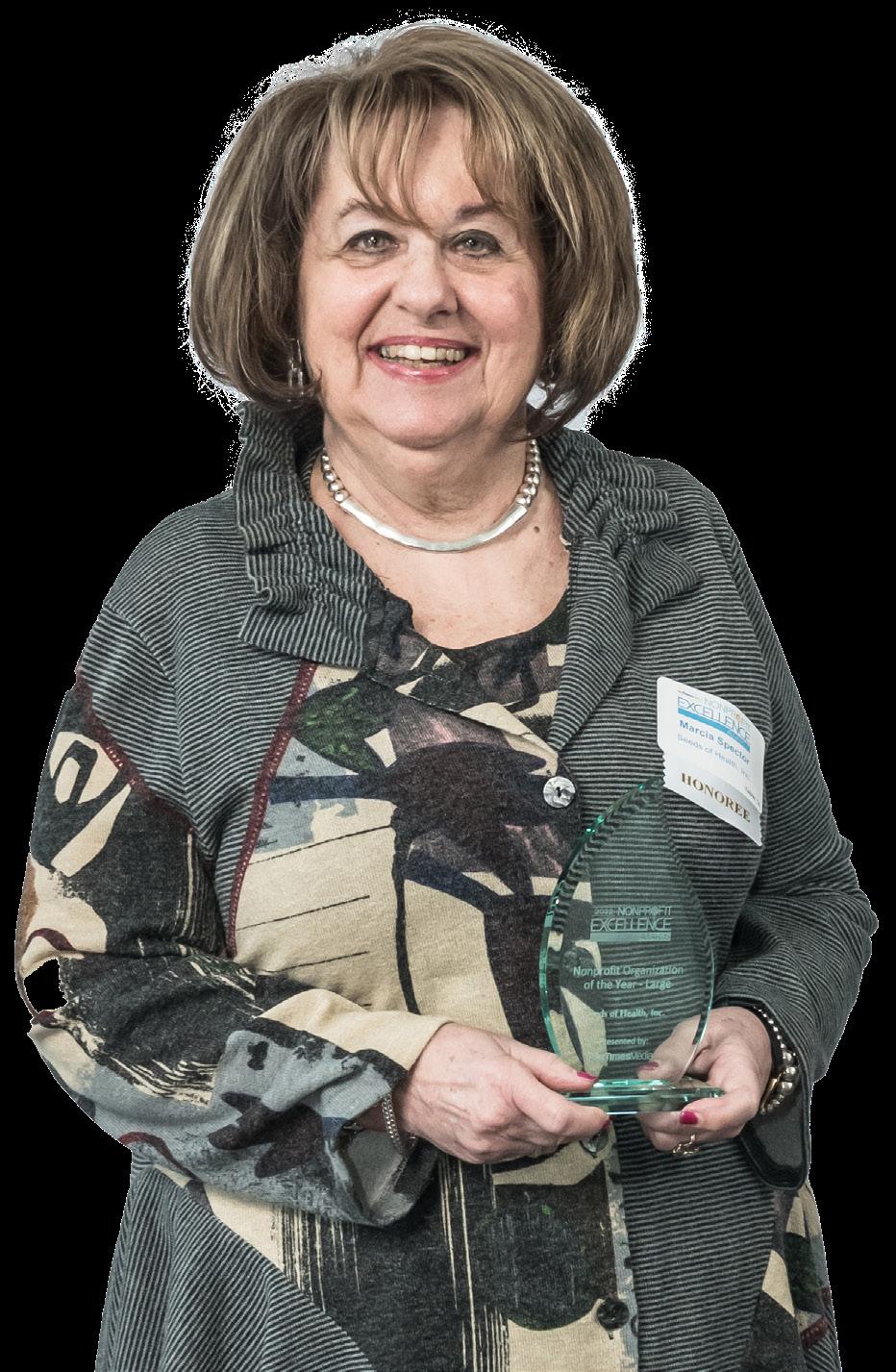
For more than a century, Goodwill Industries of South eastern Wisconsin has remained committed to its mission of offering workforce training to individuals with disabilities and others who face barriers to employment.
Its community programs, including providing certifica tion and credentials to adult learners and job placement and training, are funded through the sales of donated goods at its nearly two dozen retail stores in the metro Milwaukee area.
The organization’s philanthropy also extends to educa tion. Goodwill Industries recently gifted Dr. Howard Fuller Collegiate Academy, a charter school serving 330 students from disadvantaged Milwaukee neighborhoods, the build ing it occupies at 4030 N. 29th St. and valued at $600,000.
“We want our scholars prepared for the future, and the gift of this building will ensure that we will be able to do pre cisely that,” said Judith Parker, principal of Dr. Howard Fuller Collegiate Academy. “The entirety of the Goodwill organiza tion is clear on its mission and they act consistently within their mission.” l
LARGE NONPROFIT ORGANIZATION OF THE YEAR JUNIOR ACHIEVEMENT OF WISCONSIN
Through classroom instruction taught by volunteers, Junior Achievement of Wisconsin prepares students for the workplace and helps them develop financial literacy and en trepreneurial skills.
When the COVID-19 pandemic hit in 2020, the organi zation refused to slow down. Despite decreased funding, JA developed an innovative system for serving its clients. It piv oted from offering in-person instruction to virtual program ming, including inspirational, career-focused livestream events presented by volunteers, a career exploration video li brary showcasing local professionals in various career fields, and videos focusing on soft skills in the workplace.
“JA’s goal is to give students the tools they need to be successful as they make critical decisions about their edu cation, career and finances,” said Jenny Gryniewicz, senior director of philanthropy and stewardship for Junior Achieve ment Wisconsin. “The pandemic has revealed that financial literacy and solid career planning are essential survival skills, especially for students whose families struggle with econom ic mobility.” l
FOR CATALYST CONSTRUCTION, philanthropic practices are deeply ingrained in its business philosophy. Its corporate giving program has funded hundreds of organizations, including Teens Grow Greens, Wisconsin Lutheran High School, St. Marcus Lutheran School and Chil dren’s Hospital of Wisconsin.
In 2021, Catalyst donated $370,000 to diverse organizations in Milwaukee and South Dakota, Illinois and Minnesota. The company has provided local schools with turf, gym floors and softball fields at no cost.
“Many are quieter organizations, communi ty change makers, and people doing positive work for those who need it most,” said Sarah Gilday, director of philanthropy for Siebert
Lutheran Foundation.
Catalyst also encourages giving in the workplace by offering $1,000 to each employee to donate to a non profit of their choice. To date, 70% of employees have given $62,000 to 70 organizations.
“Other organizations have giving philosophies that stream line support for specific priori ties; yet Catalyst recognizes that meeting the community’s needs and supporting employees’ phil anthropic interests are more im portant than creating boundaries or guidelines,” said Gilday.
“What we do is construction, but we really want to be an agent for change.”
–MattBurow,CEO,CatalystConstruction
Community giving is an integral part of Ellenbecker Investment Group’s operations. Every year, Ellenbecker allo cates a percentage of its gross revenue to fund local organiza tions through its EIG Charitable Foundation.
The organization has donated nearly $225,000 since 2012 to 228 charities, including Feeding America, Soles for Jesus and Rogers Behavioral Health.
Ellenbecker also fosters philanthropy in the workplace. Employees receive $1,000 on their work anniversaries to do nate to up to two charities of their choosing. Each employee is also allocated one day a year to volunteer at their chosen charity.

The firm prioritizes community education and connec tion, offering free seminars, a quarterly newsletter and com munity events such as Inspire to Retire, Bible study and a veterans appreciation event.
In 2018, Ellenbecker launched Milwaukee’s Philanthropic Community, an hour-long radio show highlighting local non profits. “It is a wonderful way to support and bring awareness to the many incredible nonprofits in the community without expecting anything in return,” said Sara McGuire, director of marketing for Ellenbecker Investment Group. l
Supporting education is a major priority for Husco, a Waukesha-based manufacturer specializing in hydraulic and electro-mechanical control systems. More than 95% of Husco donations fund K-12 education across the globe.
Although St. Augustine Preparatory Academy in Milwau kee is the largest recipient of Husco donations, the organiza tion also funds universities, colleges and scholarships for stu dents of color and the children of its employees. Additionally, Husco contributes to a number of other organizations that are not education based.
Partnering with United Way, Husco stages fundraising events to benefit the nonprofit organization, including a pa per airplane contest, a chili cookoff, a nacho bar and putt-putt tournaments. In 2021, the company exceeded its annual goal of 300 employee volunteer hours, many of the hours taking place during the Season of Caring in September and October.
Husco encourages employee giving in several ways, in cluding matching donations to various charities and teaming up with local organizations to offer volunteer opportunities at its Waukesha campus. In 2021, Husco employees donated a total of 1,400 volunteer hours. l
The Northwestern Mutual Foundation focuses funding locally in Milwaukee on education support and projects serving the Amani, Metcalf Park and Muskego Way neighbor hoods. National funding is limited to programs and projects that align with its Childhood Cancer Program. The company has contributed more than $40 million through the program.
Dr. Howard Fuller Collegiate Academy in Milwaukee is one example of the many organizations supported by the Milwaukee-based financial services company. To help raise student awareness of math-based careers, members of the company’s actuarial staff visit the school to speak about an actuary’s typical workday.
“Northwestern Mutual is not only deeply committed to making impactful change through its giving, it is determined to serve as a leader organization in how it determines when and where to get involved,” said Judith Parker, principal of Dr. Howard Fuller Collegiate Academy.
Additionally, Northwestern Mutual has donated fitness equipment to the school, allowing students and staff to im prove their physical health without purchasing expensive gym memberships. “This has improved the quality of life for our students and educators, and we are so grateful,” said Parker. l

VOLUNTEERING is an integral part of life for Mary Burgoon, portfolio manager for Milwau kee-based Rockwell Automation.

Burgoon serves on the boards of multiple nonprofits, including as chair of TEMPO Mil waukee, an organization dedicated to empow ering professional women. Through her efforts to create a more diverse organization, TEMPO now strives to reach more women of color.
Additionally, Burgoon is a board member for STEM Forward, a nonprofit collaborating with businesses, government and educational institutions to promote science, technology, engineering and mathematics literacy to all

students.

Fighting hunger in Milwaukee is also a priority for Burgoon, who has been volunteer ing with Hunger Task Force since 1999. She is a former board member for the organization, and her accomplishments include implement ing a mobile market to deliver nutritious food to underserved communities and working with the Voices Against Hunger, an advocacy branch of Hunger Task Force.
“She is constantly helping multiple organiza tions, and her accomplishments are major and innumerable,” said Susan Nadeau, external com munications manager for Rockwell Automation. l


“I’m really fortunate to work for Rockwell Automation. Not only do they encourage and support through their own treasure and time, they encourage their employees to give back to support what’s important to us, allocating time and supporting us in our passions.”
–MaryBurgoon,RockwellAutomationSince 2019, Brian O’Neill, a retired former account exec utive for Travelers Insurance, has proven his commitment to Feeding America Eastern Wis consin by logging a staggering 1,000 volunteer hours with the nonprofit organization, whose aim is to fight hunger in the region.

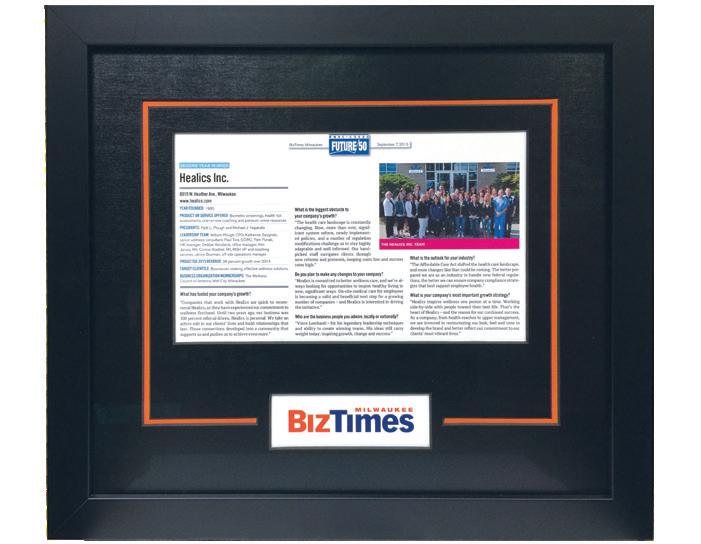
As a Feeding America volunteer, O’Neill sorts do nated food and packs items into boxes for clients. He has also demonstrated leadership abilities by training volunteers and answering their questions. O’Neill doesn’t hesitate to assist at major organizational events and with tasks like packing emergency boxes after local disasters have occurred.
“Over the course of his 1,000 volun teer hours, it is obvious that Brian showcas es extreme dedication and cares about the community,” said Tony Cartagena, public relations and communications coordinator
for Feeding America Eastern Wisconsin. “Without his efforts, our organization would not be able to provide access to healthy food for all of our neighbors in need. We couldn’t do what we do without a volunteer MVP such as Brian O’Neill.” l
PARTNERING WITH Habitat for Humanity of Waukesha County, Jim Tarantino, founder of real estate development firm Tarantino & Company, will be a key player in building affordable hous ing community Domenica Park, Habitat’s biggest project to date.
Tarantino’s firm owns and operates Capri Communities, which oversees 14 assisted living facilities in the metro Milwaukee area. Tarantino and the Capri Communities staff have donated many hours of in-kind support to the 20-unit subdivision, located in Waukesha’s Broadway Heights neighborhood. Besides contractor and real estate assistance and staff help, Capri Com munities will also complete tasks for the building
site before development begins.
“They’ve provided incalculable in-kind services in the form of staff time and expertise, contractor support, real estate support, and will conduct all of the site pre-development work,” said Brett Peloquin, director of development for Habitat for Humanity of Waukesha County. “Uniquely, Jim has also pro vided Habitat with an interim project manager for a period of 24 weeks to help evaluate, improve and build the ca pacity of our construction department.” l
“We all have value to provide when we start looking at how we help others. You find true joy when you help other people and assist them in their lives.”
–JimTarantino,Tarantino&CompanyWayne Oldenburg, founder and chief executive officer of Oldenburg Group, provides several area non profits with rent-free office space and amenities located at his office building in Glendale.
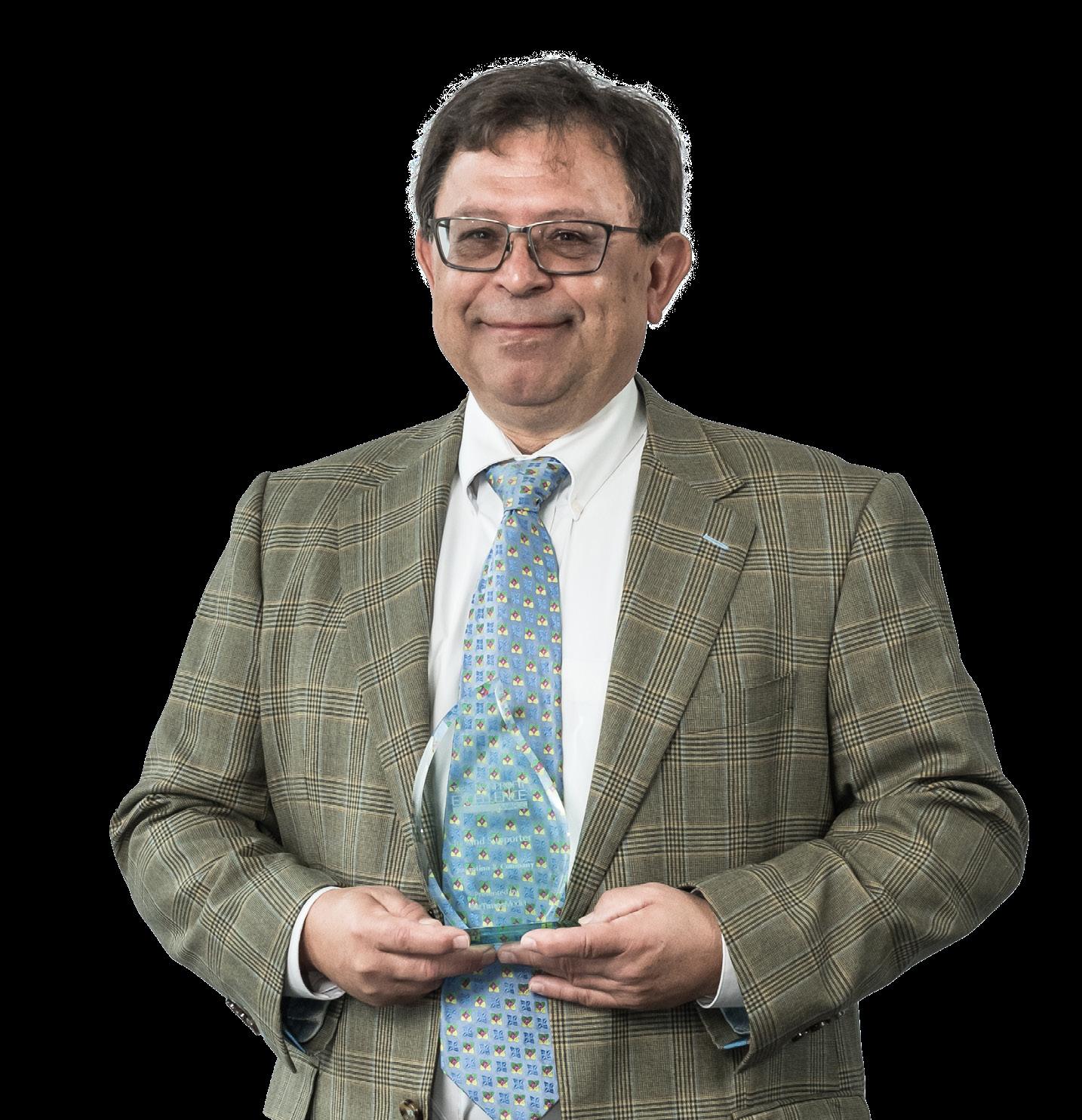
Since 2011, the value of Old enburg’s in-kind support for ABCD (After Breast Cancer Diagnosis), Girls on the Run and Sharp Literacy has totaled nearly $1.3 million. Those organizations can use the money they save on rent to help fulfill their mission.
“Without having to worry about fundraising to cover $36,000 in office rent annually, SHARP Liter acy can direct those funds toward programming for urban elementary students in Milwaukee, Racine and Waukesha,” said Lynda Kohler, presi dent and CEO of SHARP Literacy.
Girls on the Run offers scholarships for 377 girls to attend a 10-week youth devel opment program, and ABCD provides free emotional support services to a larger per centage of clients who have been affected
by a breast cancer diagnosis.
Oldenburg’s donated space and ameni ties for its nonprofit tenants include a break room, fitness center and cafeteria with bud get-friendly and healthy food options. l

The Sheet Metal, Air, Rail, and Trans portation union Local 18 uses its technical expertise to assist vulnerable members of the community.
Each year, SMART installs HVAC sys tems for Habitat for Humanity properties in Sheboygan, Waukesha and the Fox Valley at no cost to the homeowners or organiza tions. SMART is also a strong supporter of the Association for the Rights of Citizens with handicaps.

In addition to repairing and maintain ing the organization’s building, SMART contributed $43,000 in repairs and labor
— including setting up tents, sanitizing the kitchen and installing an air condi tioning unit in a personal care tent — to ARCh’s Camp Pow Wow, a summer camp in Menomonee Falls for children and adults with disabilities.
“At ARCh, we have felt the sunshine of SMART’s compassion for the last 15 years, starting when they designed and built ramps and railings on tents at our summer camps so that individuals in wheelchairs could participate equally in the process,” said Jennifer Horth, executive director for ARCh.
THROUGH HER VOLUNTEER EFFORTS, Danielle White, assistant general counsel, corporate governance and securities for Rockwell Auto mation, helps ensure legal aid for community members in need.
White, who graduated from Marquette University Law School in 2011, serves as presi dent of the board of Legal Action of Wisconsin, director on the board of the Legal Aid Society of Milwaukee and director on the board of the Association of Corporate Counsel’s Wisconsin chapter, after having served as board presi dent from 2020-2021.
Helping her community is a passion
of White’s. Besides being a member of the planning committee for nonprofit organization Centro Legal’s largest annual fundraiser, White volunteers at the Veterans Service Office and United Community Center clinics.
“She provides immense leadership, guidance, knowledge and financial support to organizations that deliver much-needed legal services to people without other resources, while not losing touch with those very people whom she feels it is important to serve,” said Susan Nadeau, external communications man ager for Rockwell Automation. l
“My parents have always said, ‘Our family has been blessed to be a blessing.’ I’ve taken that passion into the law. A lot of my efforts have been with the provision of low and no cost legal services to people in our community, which is an area of great need for people.”
– Danielle White, Rockwell Automation
For Maggie Pinnt, manager of business development at Pepper Con struction of Wisconsin, effective lead ership is tied to community giving.
She donates her time and exper tise to several local nonprofit organi zations, including GPS Education Part ners, the Center for Veterans Issues, the Milwaukee County War Memorial, Junior Achievement of Wisconsin and Carroll University, her alma mater.

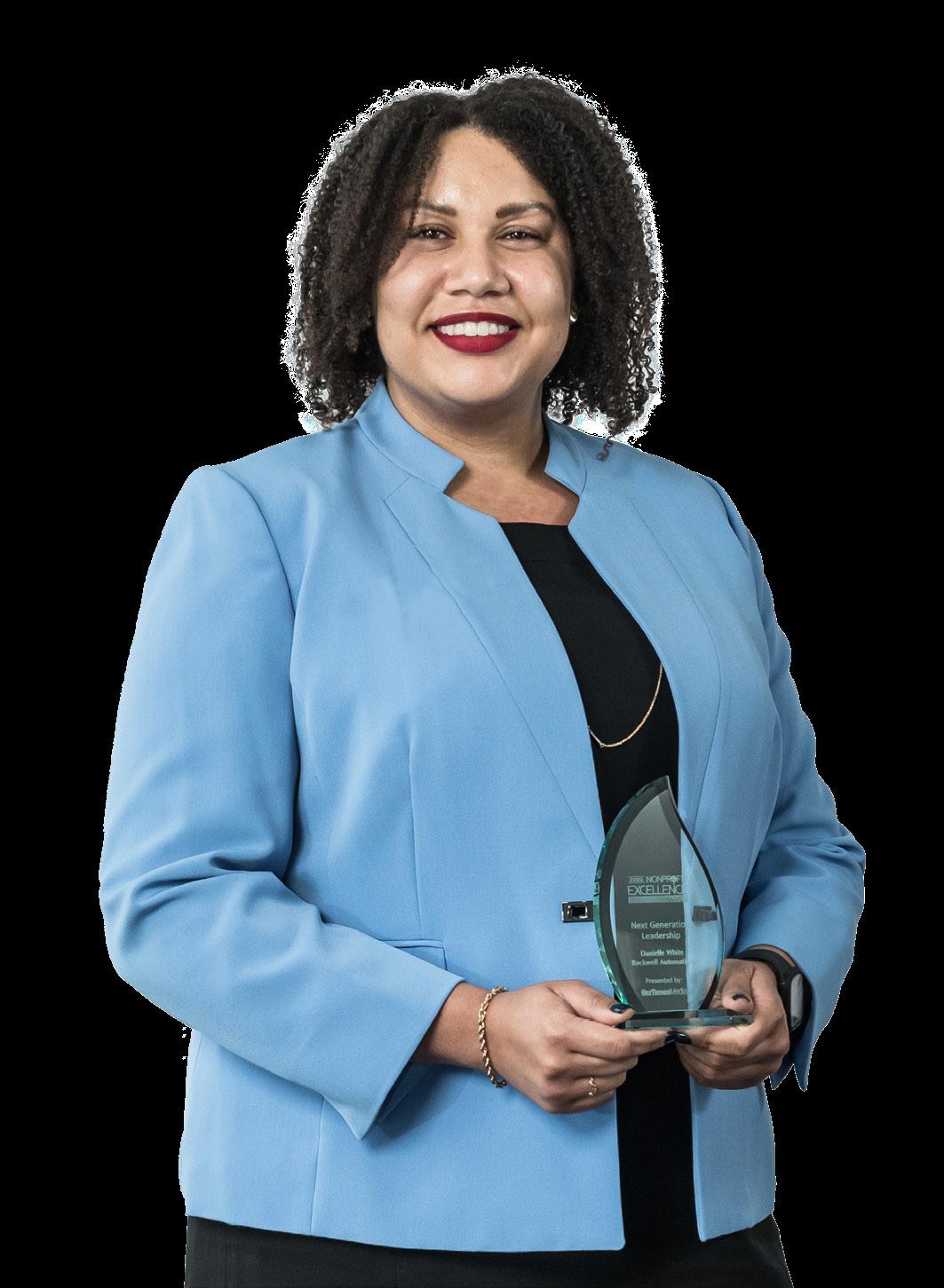
Through her professional network, Pinnt has connected many local busi nesses and funders to GPSEd, which has resulted in the addition of a board member and partnership with compa nies such as Pepper Construction.
“Maggie is someone who will always stick to her word,” said Laura Derpinghaus, director of marketing and communications for GPS Educa tion Partners. “Above this, she will do it with the utmost purpose and passion. As someone you can always count on, Maggie continuously fol lows up and strives to do the right thing, expecting nothing in return.” l

Matthew Wuest, an attor ney and shareholder for Godfrey & Kahn S.C., dedicates much of his time to serving on boards and committees of local non profit organizations, including St. Francis Children’s Center, the Boys & Girls Clubs of Greater Milwaukee, the Eastern District of Wisconsin Bar Association and the North Shore Library.
As president of the Glen dale-based St. Francis Children’s Center board of directors, Wuest has navigated the organization through challenges brought on by the COVID-19 pandemic, including building closure and revenue issues and adopting ways to deliver client services without a loss of quality or inter ruptions.
“Matt’s present and past board con tributions, demonstrated leadership and sincere commitment to organizations like St. Francis Children’s Center is why we be lieve he is a worthy nominee for the Next
Generation Leadership award,” said Steph anie Cruz-Cordero, director of marketing and development for St. Francis Children’s Center. “We are excited to see what he will accomplish in years to come.” l
 THOM M. Employee Benefits
THOM M. Employee Benefits
















Joins
Ixonia Bank is pleased to announce it has added Steve McGuire, to its strong Commercial Banking Team as the newest Senior Vice President of Commercial Lending. Steve brings over 40 years of commercial banking experience. Most recently, he held the position of Wisconsin Commercial Real Estate (CRE) Market Manager for a national bank. Prior to that he was Executive Vice President at a prominent regional bank, managing all aspects of CRE lending in the state of Wisconsin. Steve is based out of the Ixonia Bank’s Downtown Milwaukee office located at 611 E. Wisconsin Avenue, Suite 101, Milwaukee, WI 53202.
Commercial Banking at Town Bank, N.A. Promotes



Commercial Banking at Town Bank, N.A. is pleased to announce the promotion of Glenn Margraff to Executive Vice President and Head of Commercial Banking as part of their statewide expansion plan. The appointment comes on the heels of substantial growth for the bank in the southeastern Wisconsin market and puts Wintrust in an ideal position to expand its commercial services. In his new role, Margraff will be tasked with expanding the bank’s relationship-centric services to new middle-market businesses across the state and establishing Wintrust as one of Wisconsin’s core commercial banking institutions.


We are pleased to announce the addition of Pete Schumacher to the Oarsman Capital team. “Pete’s focus on financial planning with his accounting background builds on an exceptionally important aspect of Oarsman’s investment management – that in-depth financial planning and investment management need to fit together to get the right results”, says Bob Phelps, President of Oarsman Capital. Mr. Schumacher previously worked at Johnson Financial and Cleary Gull and has 35 years of financial industry experience. Oarsman Capital, Inc. is a Milwaukee-based investment management firm.
Meissner Tierney Fisher & Nichols s.c. Welcomes Sean A. Bukowski as an Attorney
Meissner Tierney Fisher & Nichols s.c. (MTFN) is pleased to welcome Sean A. Bukowski as an Attorney. Sean joined MTFN in early October and is a member of the litigation team, focusing on insurance defense and insurance coverage issues.

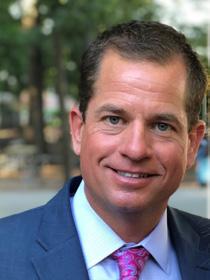
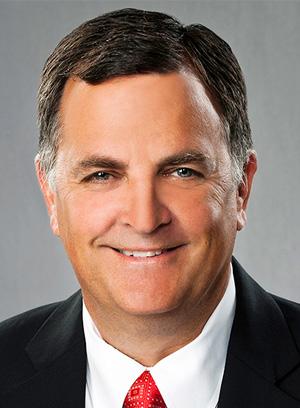


Operose Advisors names Ryan D. Schultz as shareholder.
Operose Advisors announced today that Ryan D. Schultz has become a shareholder in its holding company (Beulah Holdings LLC). Schultz is a Shareholder & Executive Vice President, a member of the Board of Directors and principal of Fiduciary Dev. Inc.

Bradley Promotes Latisha Rathell to Director of Customer Service

Doral
North Shore Bank welcomes Billy Lewis as a mortgage loan officer for the bank’s Wauwatosa branch. With over 25 years of experience, Lewis is a member of the National Association of Hispanic Real Estate Professionals and WI Realtors Association.
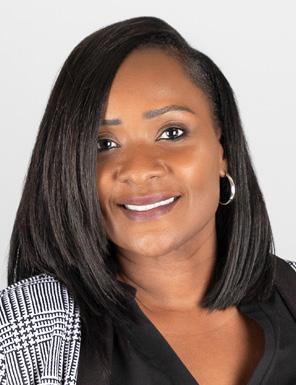
Bradley Corporation announces the promotion of Latisha Rathell to Director of Customer Service. Rathell brings 20-plus years of experience in financial and business analysis, reporting, project management and contract performance management roles.
announces the promotion of Robin Baker to Executive Vice President. Baker specializes in business strategy, branding & fundraising and will focus on longterm initiatives to strengthen the organization’s mission.
This 1930s photo shows a lighted Christmas tree near North 10th Street. A crowd along the road attends a Christmas concert. The official City of Milwaukee Christmas Tree for 2022 is located in the Deer District outside Fiserv Forum instead of outside City Hall as it had been in recent years and Red Arrow Park before that.

— Photo courtesy of Milwaukee Public Library / Historic Photo Collection
DISGRUNTLED ACTIVIST investors of Menomonee Falls-based Kohl’s Corp. made a lot of noise during the past two years, com plaining about the company’s performance and its low stock price, demanding changes in leadership and in the direction of the company.
Well, now they’re getting their wish. Kohl’s chief executive officer Michelle Gass will leave the company on Dec. 2 to become president of San Francisco-based Levi Strauss & Co.
She’s the latest Kohl’s exec to leave the company. Earlier this year, chief merchandising officer Doug Howe, chief marketing officer Greg Revelle and chief technology officer Paul Gaffney also left.
Gass has been the CEO of Kohl’s since 2018. She’s led the company during a tumultu ous time in the retail industry. Online retail, led by Amazon, has shaken up the industry, leading to the closure of many brick-and-mortar stores and numerous retailers going out of business.
Plus, the COVID-19 pandemic forced brickand-mortar retail stores to temporarily shut their doors, causing a huge loss of sales in 2020.
But Kohl’s has weathered the storm better than most. Its store count has remained steady during the past decade. The company had pre-pandemic revenues of about $20 billion, which slipped to $16 billion during 2020 but then recovered to $19.4 billion in 2021.
The company reported net income of $801 million in 2018, Gass’ first year at the helm. That fell to $691 million in 2019 and then the company lost $163 million in 2020 due to the pandemic. Then it bounced back in 2021 with total revenue of $938 million.
But Kohl’s activist investor groups have said the company should be performing at a higher level. They’re no doubt unhappy that the company’s stock price, which was above $60 a share when Gass became CEO and peaked at above $80 later that year, is now considerably lower, sinking as low as $25 this year.
Last year, activist investors pushed for a shakeup of the Kohl’s board seeking new mem bers with more retail industry experience. A settlement was reached, and three new board members were added, including Tom Kings bury, who will be interim CEO until a successor
VOLUME 28, NUMBER 14 | NOV 21, 2022
126 N. Jefferson St., Suite 403, Milwaukee, WI 53202-6120
PHONE: 414-277-8181 FAX: 414-277-8191
WEBSITE: www.biztimes.com
CIRCULATION: 414-336-7100 | circulation@biztimes.com
ADVERTISING: 414-336-7112 | advertising@biztimes.com
EDITORIAL: 414-336-7120 | andrew.weiland@biztimes.com
REPRINTS: 414-336-7100 | reprints@biztimes.com
PUBLISHER / OWNER
Dan Meyer dan.meyer@biztimes.com
DIRECTOR OF OPERATIONS Mary Ernst mary.ernst@biztimes.com
COMMUNITY ENGAGEMENT / OWNER Kate Meyer kate.meyer@biztimes.com
EDITORIAL EDITOR Andrew Weiland andrew.weiland@biztimes.com
MANAGING EDITOR Arthur Thomas arthur.thomas@biztimes.com
ASSOCIATE EDITOR Maredithe Meyer maredithe.meyer@biztimes.com
REPORTER Ashley Smart ashley.smart@biztimes.com
REPORTER Cara Spoto cara.spoto@biztimes.com
REPORTER Lelah Byron lelah.byron@biztimes.com
SALES & MARKETING
DIRECTOR OF SALES Linda Crawford linda.crawford@biztimes.com

SENIOR ACCOUNT EXECUTIVE Christie Ubl christie.ubl@biztimes.com
ACCOUNT EXECUTIVE Paddy Kieckhefer paddy.kieckhefer@biztimes.com
ACCOUNT EXECUTIVE Dylan Dobson dylan.dobson@biztimes.com
ACCOUNT EXECUTIVE Christy Peterson christy.peterson@biztimes.com
SALES ADMIN Gracie Schneble gracie.schneble@biztimes.com
ADMINISTRATION

ADMINISTRATIVE COORDINATOR Sue Herzog sue.herzog@biztimes.com
PRODUCTION & DESIGN
SENIOR GRAPHIC DESIGNER Alex Schneider alex.schneider@biztimes.com Independent & Locally Owned Founded 1995 —
to Gass is named.
Some activist investors wanted to see the company sold, and Kohl’s earlier this year entered into exclusive negotiations with Ohiobased Franchise Group Inc.; the negotiations ended without a sale.
It always seemed clear that Kohl’s leader ship had no desire to sell the company and wanted to stick to their turnaround plans for the company, which included the addition of Sephora beauty stores within Kohl’s stores.
Gass remained under fire from activist investors, and you can’t blame her for taking an opportunity for a fresh start elsewhere.
So now one of southeastern Wisconsin’s largest, most important and most philanthropic companies will get a new leader who could take it in a new direction. A lot is at stake, not only for the future of the company, but also the region’s economy. n
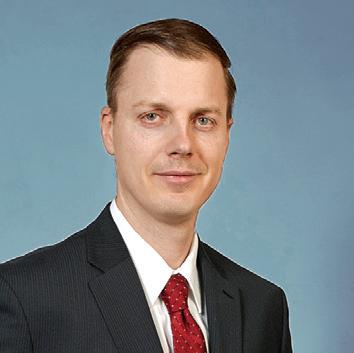 ANDREW WEILAND EDITOR
ANDREW WEILAND EDITOR
executive director of Near West Side Partners

KEITH STANLEY has served as executive director of Near West Side Part ners for the past eight years. He is stepping down at the end of the year to become president and chief executive officer of Charlotte, North Caroli na-based University City Partners. During Stanley’s leadership of NWSP, 47 new businesses have opened within Milwaukee’s Near West Side area. In an interview with BizTimes Milwaukee reporter Ashley Smart, Stanley reflected on his time with the organization.
“The NWSP team and community know efforts must go beyond get ting businesses in storefronts and residents in homes. A continued focus on the bigger picture – supporting neighborhood efficacy, community engagement, cross-collaboration and equity – is key to sustaining com mercial corridors and supporting business owners. To do so, we’ve de veloped transformative programs like Rev-Up MKE and Near West Side Week. Keeping those traditions alive – and building on them – brings immense value to our business owners and residents.
“In addition, addressing city-wide challenges through advocacy for improved public transportation and a solution to the reckless driving crisis will make the Near West Side more accessible and desirable to visitors and help our commercial corridors thrive.”
“All nonprofits and organizations working on behalf of the com
munity will continue to face the many structural issues associated with housing, workforce development and social determinants of health. Near West Side Partners was built in large part to address these challenges, through initiatives like the PARC program, Landlord Compact meetings and most recently, the Concordia 27 project. Expanding partnerships, evolving solutions to meet the needs of the community, and continuing to be advocates for our residents and business owners are essential to maintain momentum and deliver on the NWSP mission to nurture a well-balanced, thriving mix of residential neighborhoods and business corridors.”
“For a successful private-public partnership you need a few key ingredients: leadership and commitment from the top of the institutions, passion from the staff and team in the community, a strong belief that cross-collaboration is effective in the service of good and – perhaps most important – trust. Establishing trust among residents, stakeholders, anchors and other partners lays the foundation for everything to follow, and it’s no easy task, but everyone deserves a seat at the table and the peace of mind sharing a common vision can bring. That’s how you make the magic happen and accomplish big goals – together.”
“Near West Side Partners has offered me so much in the past eight years, and it’s been an honor to help build and lead the organization. Thanks to the hard work and dedication of its staff, board, anchor insti tutions, business owners and residents, NWSP has established itself as a model for private-public partnership and resident engagement. It’s a bittersweet goodbye, but the chance to continue NWSP’s organizational model and successes in Charlotte is an exciting one. Near West Side Partners is in good hands and will no doubt continue to make a positive impact on the community and the city of Milwaukee.” n
